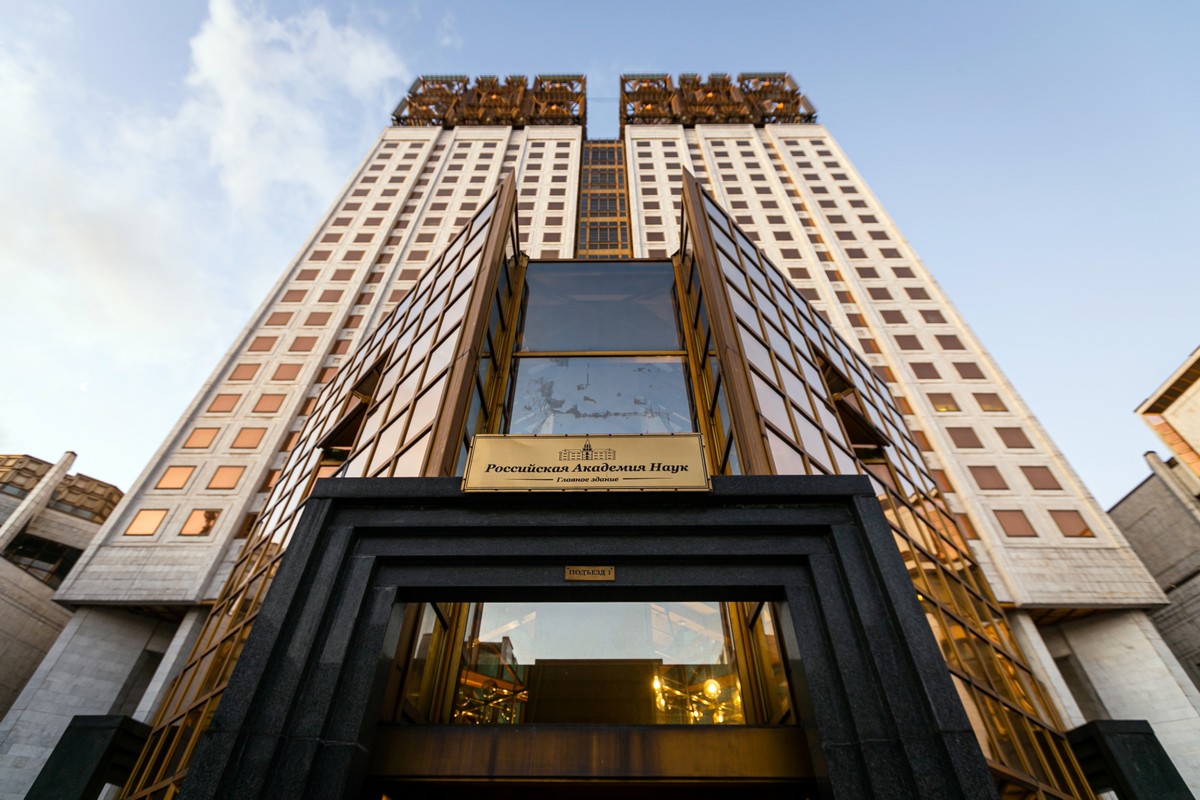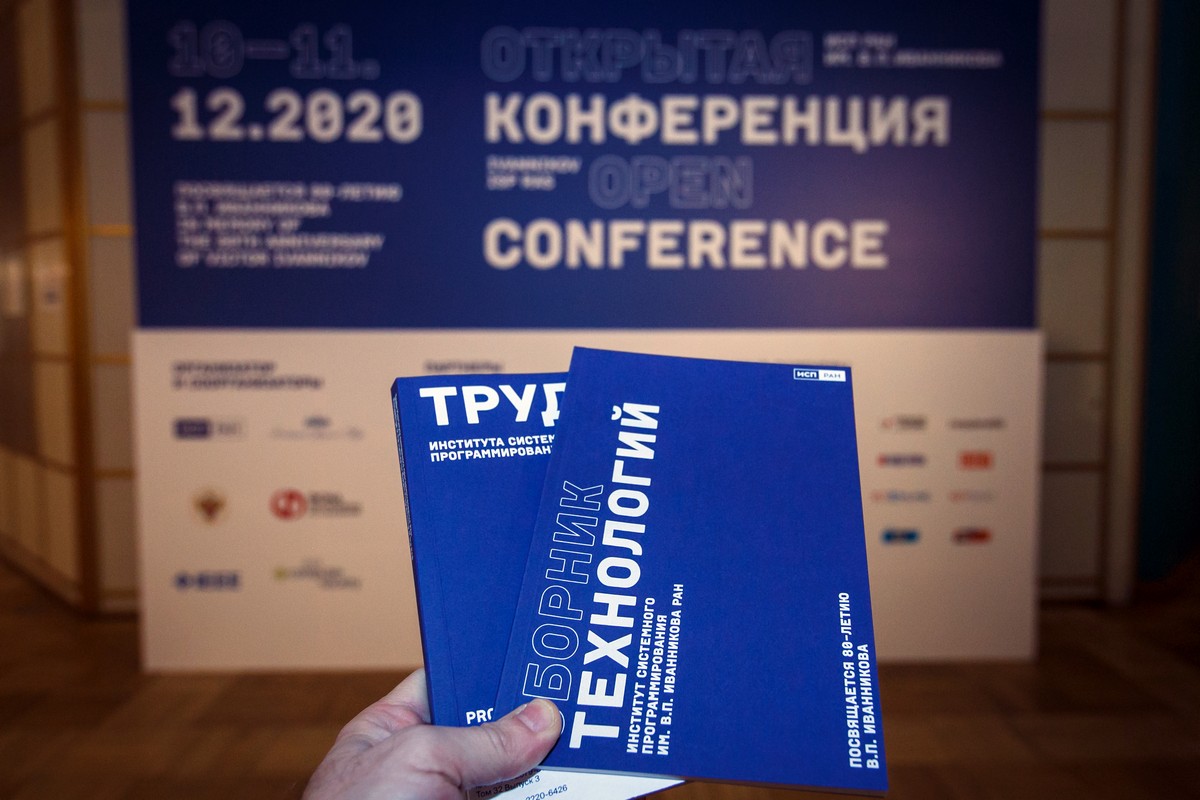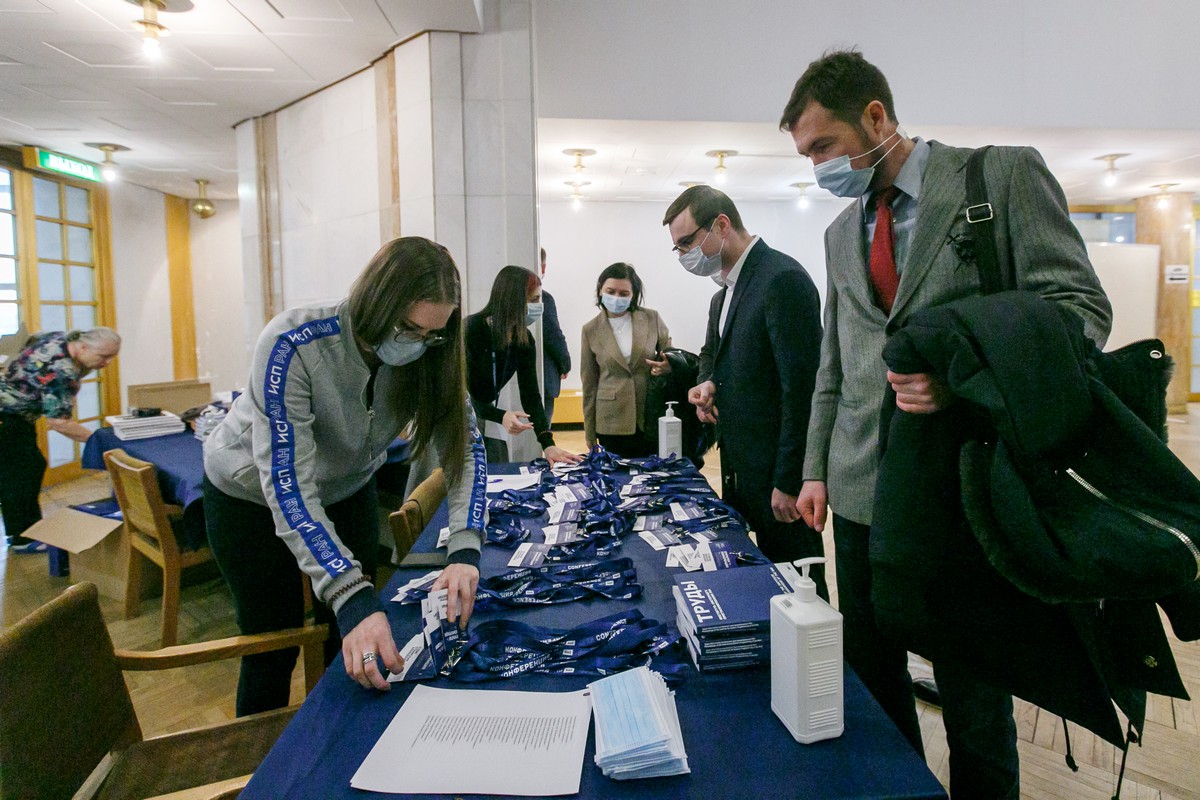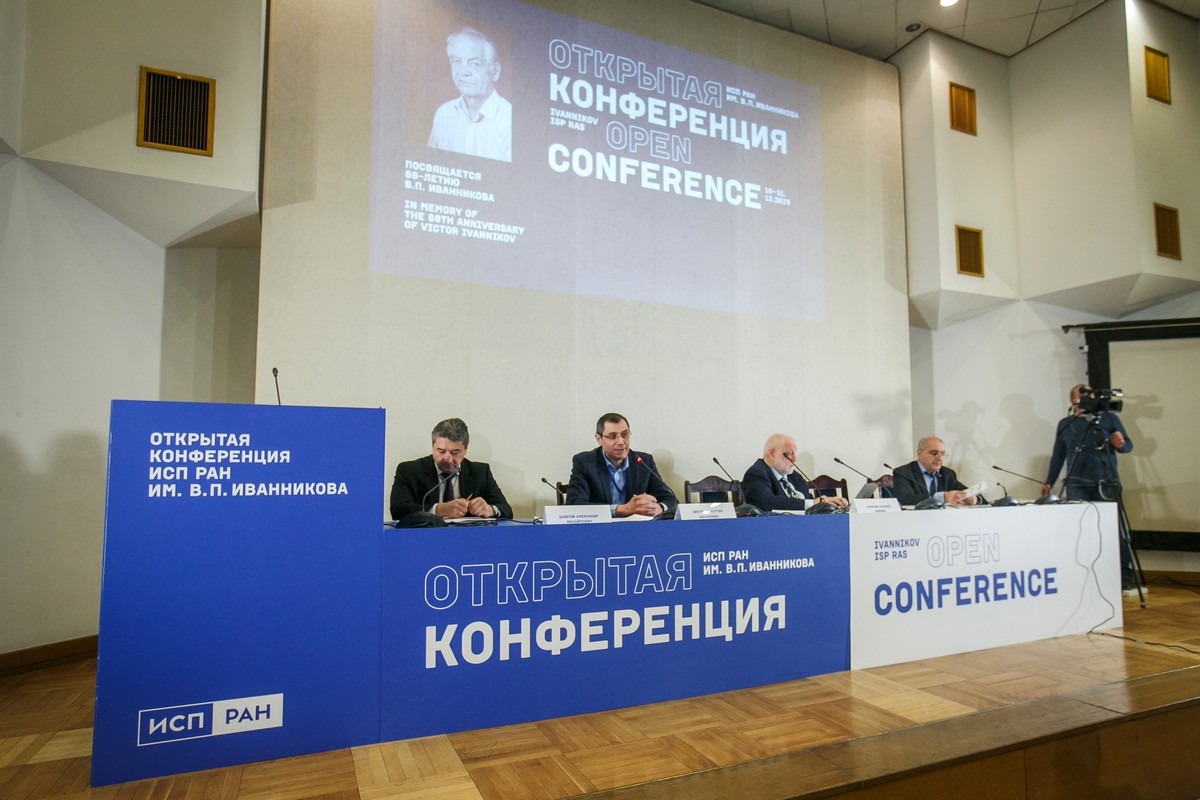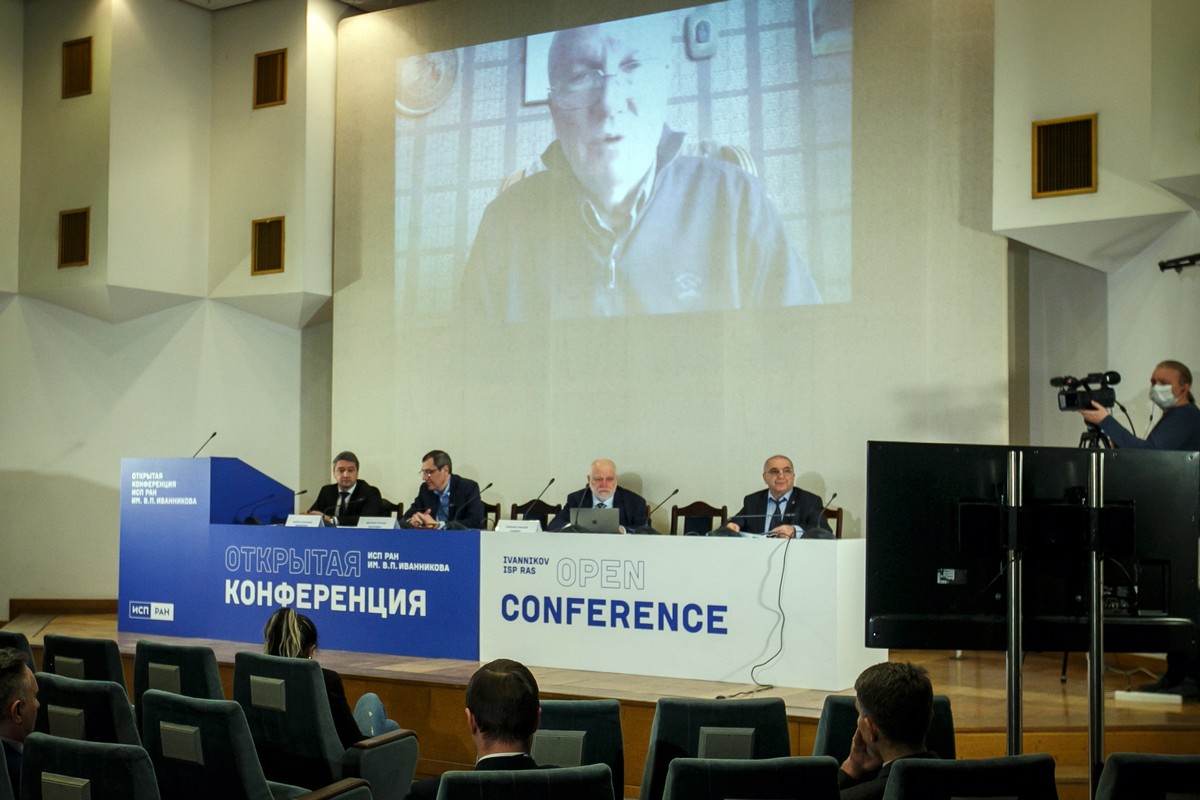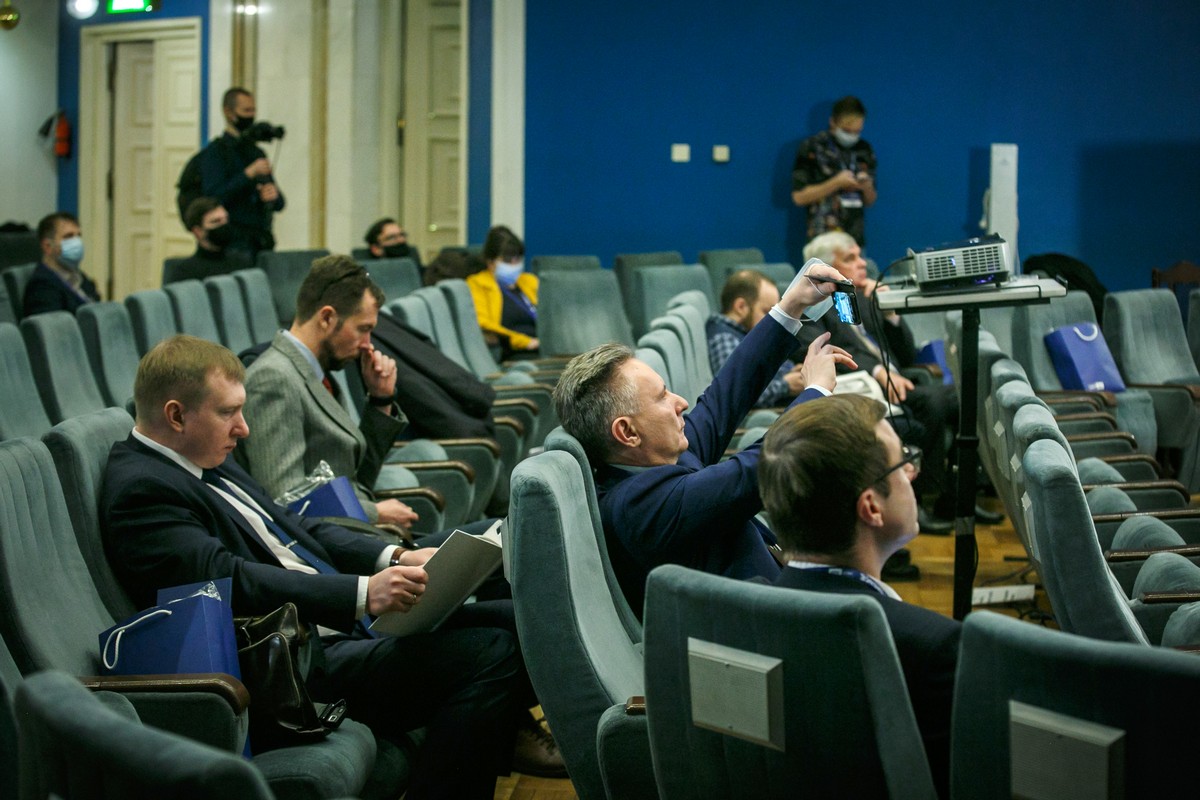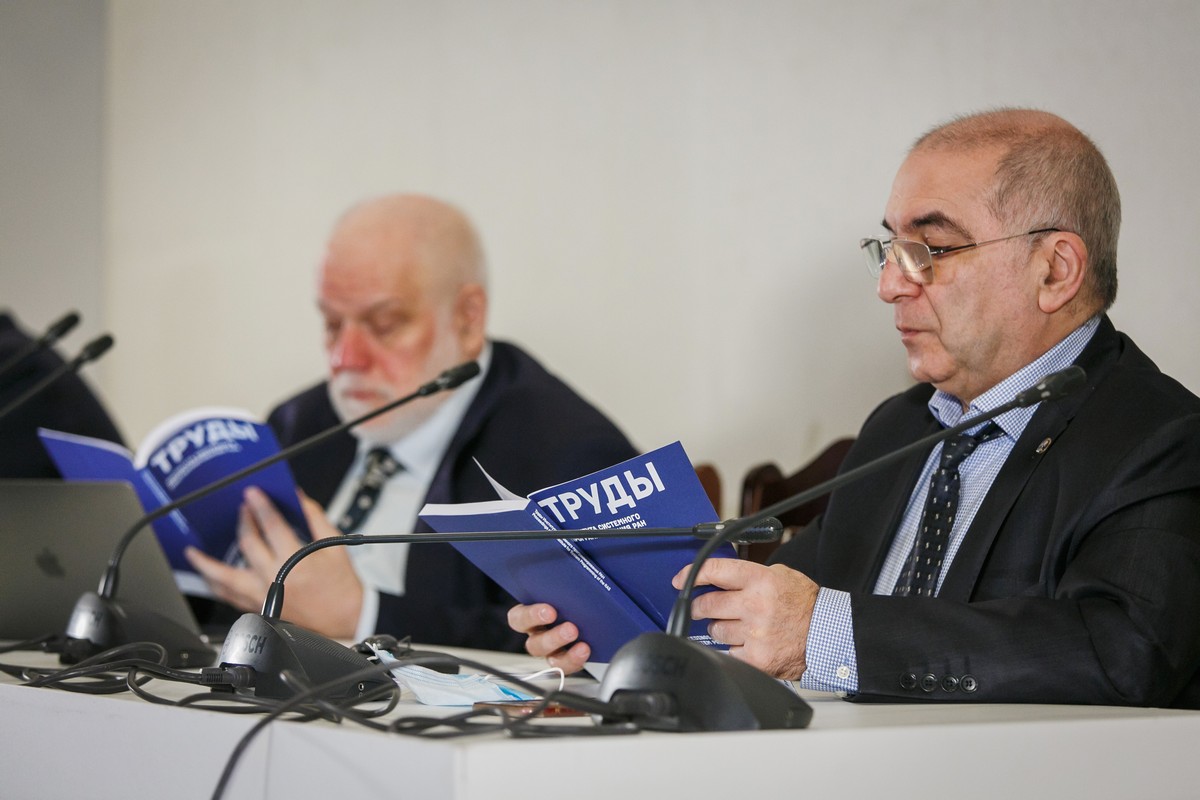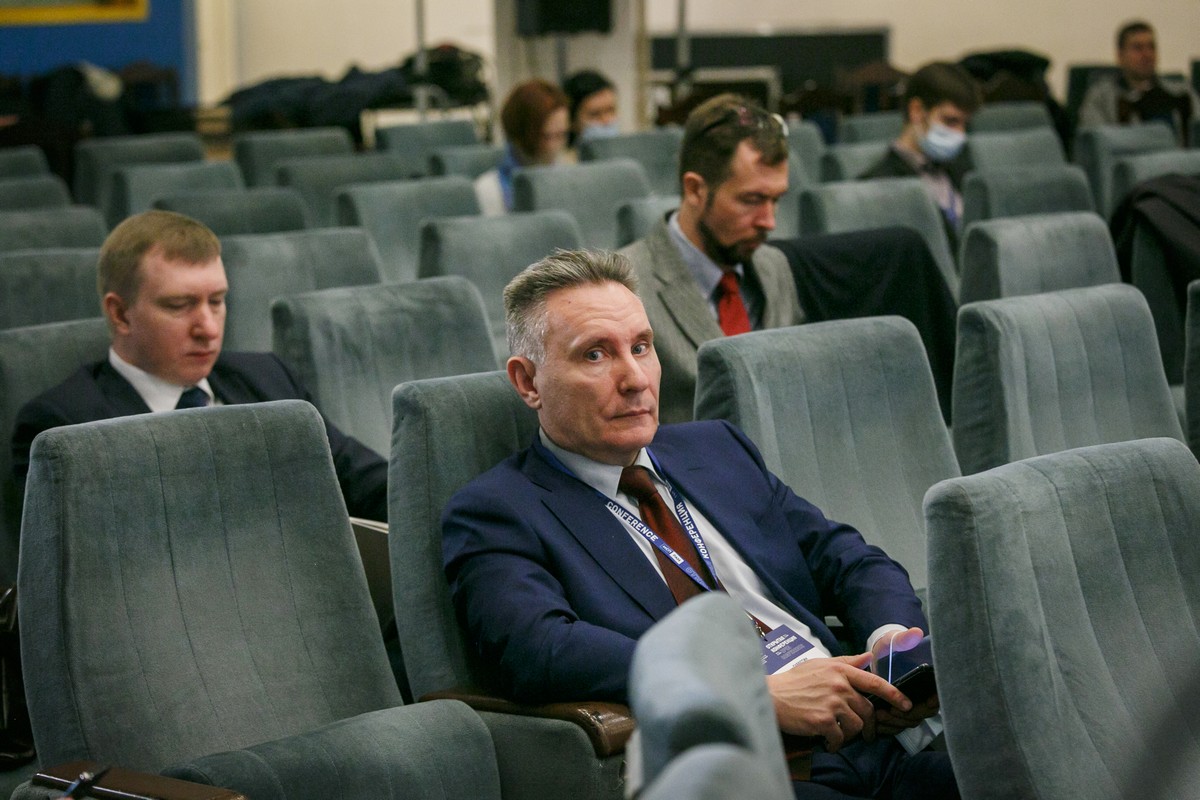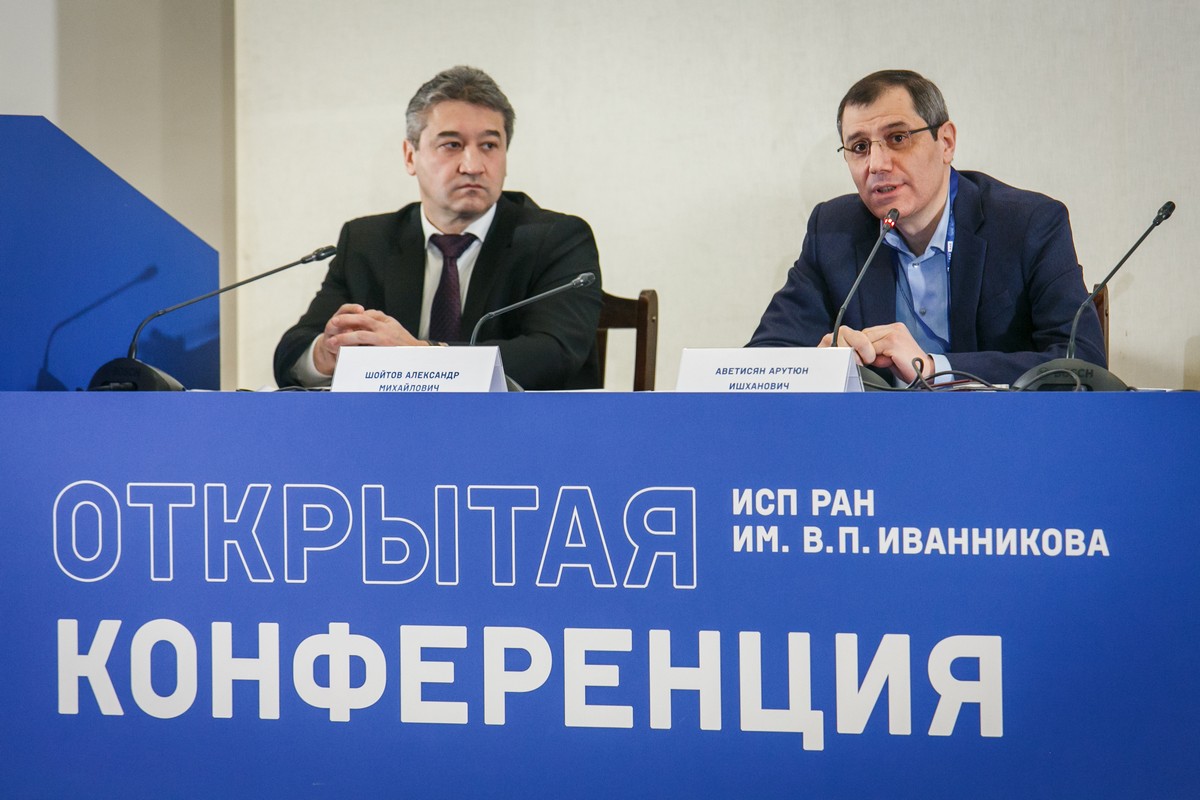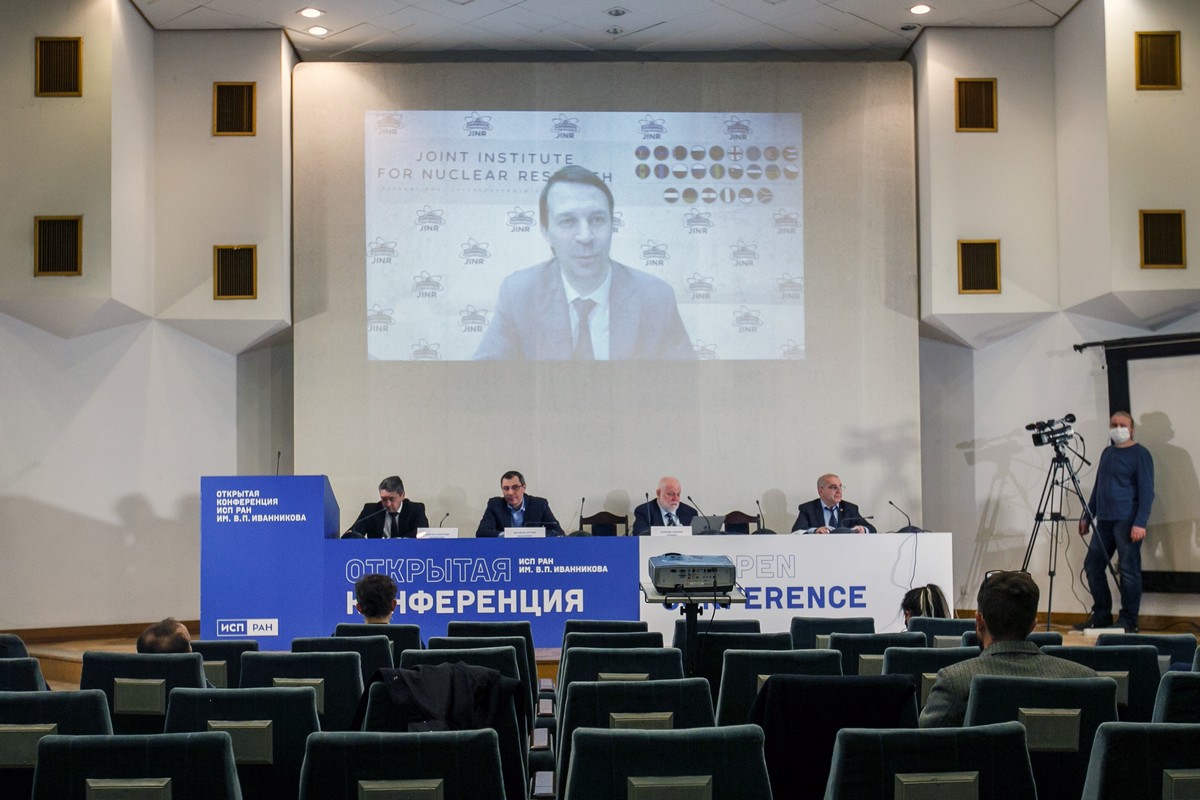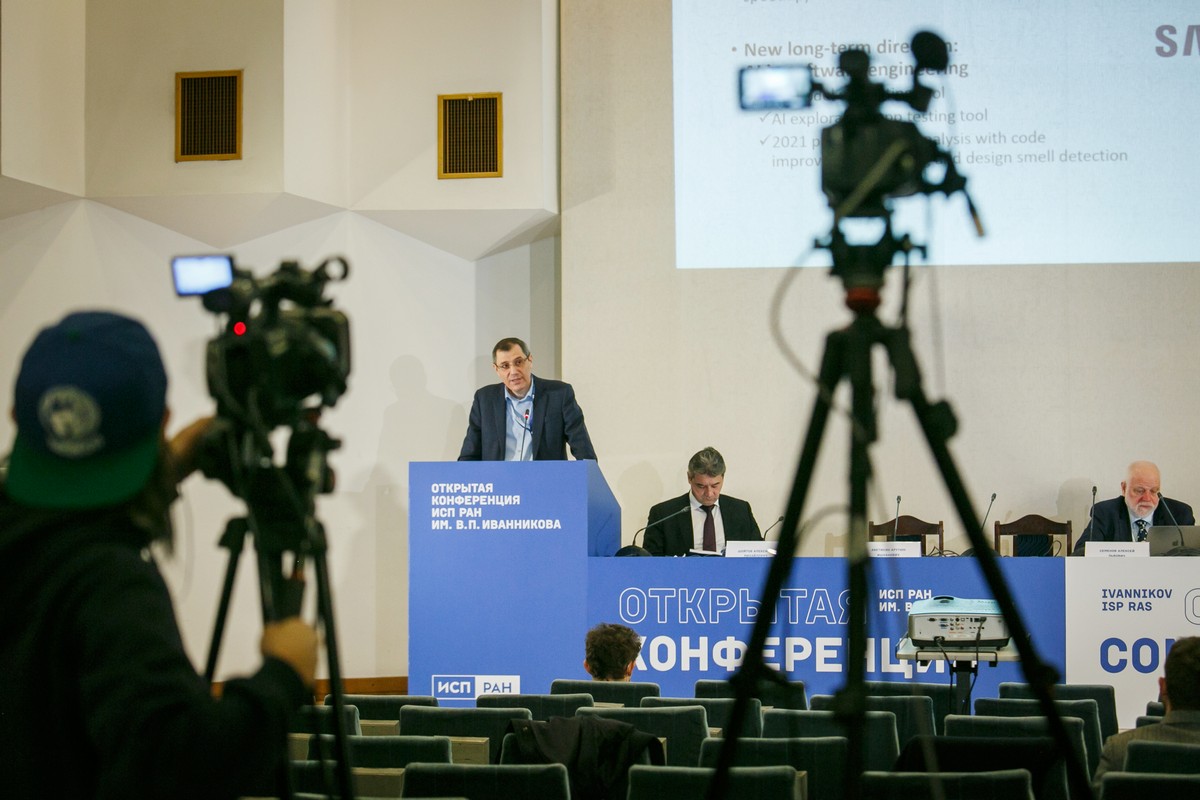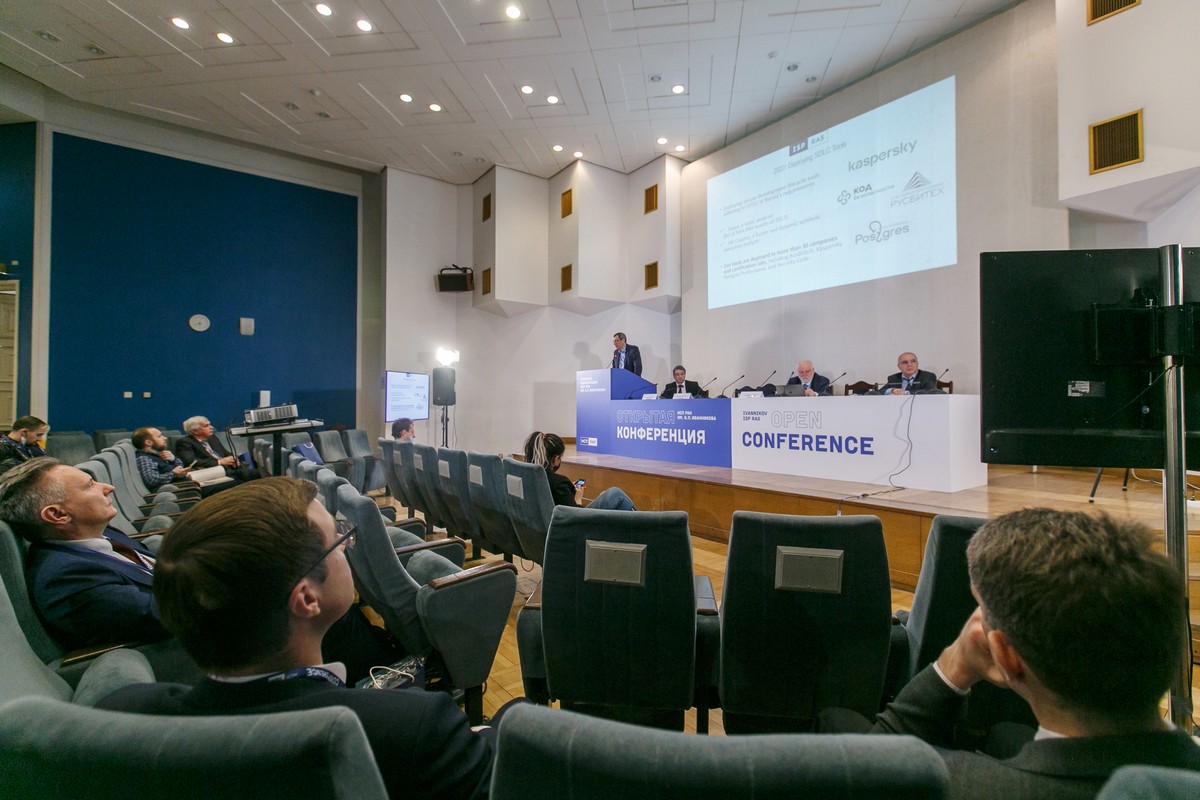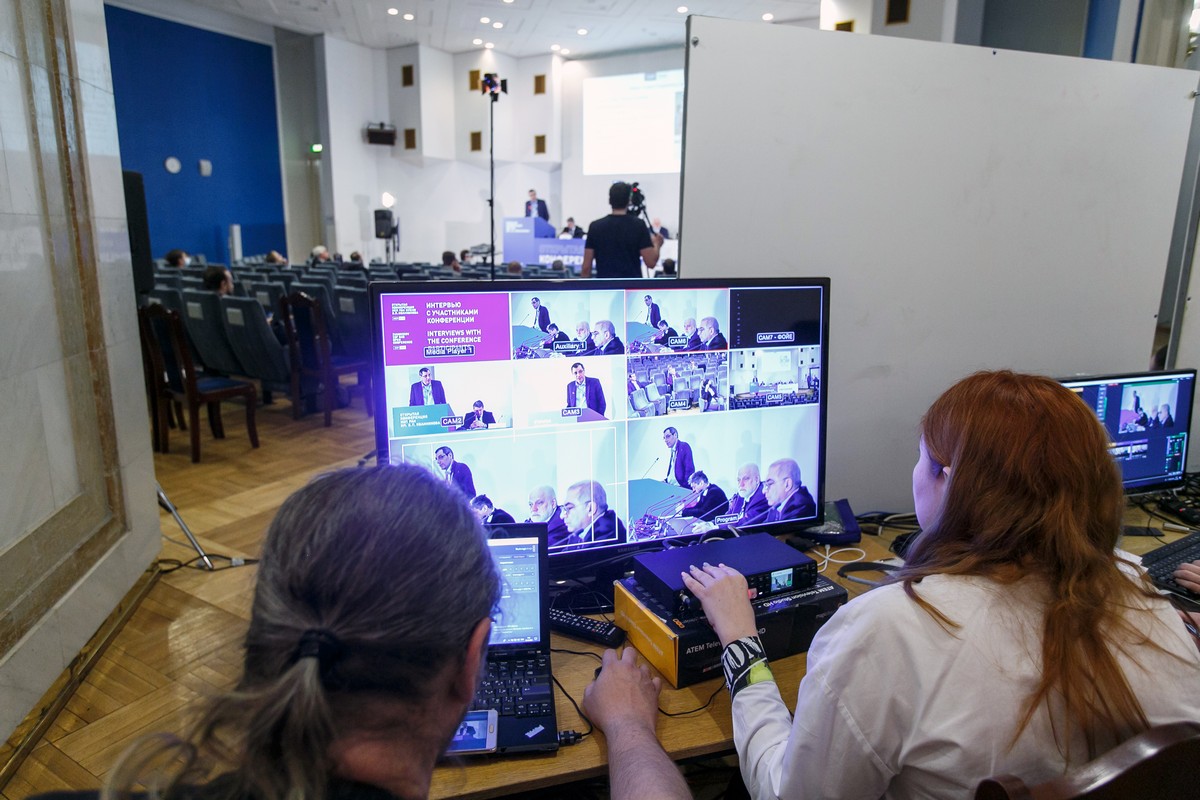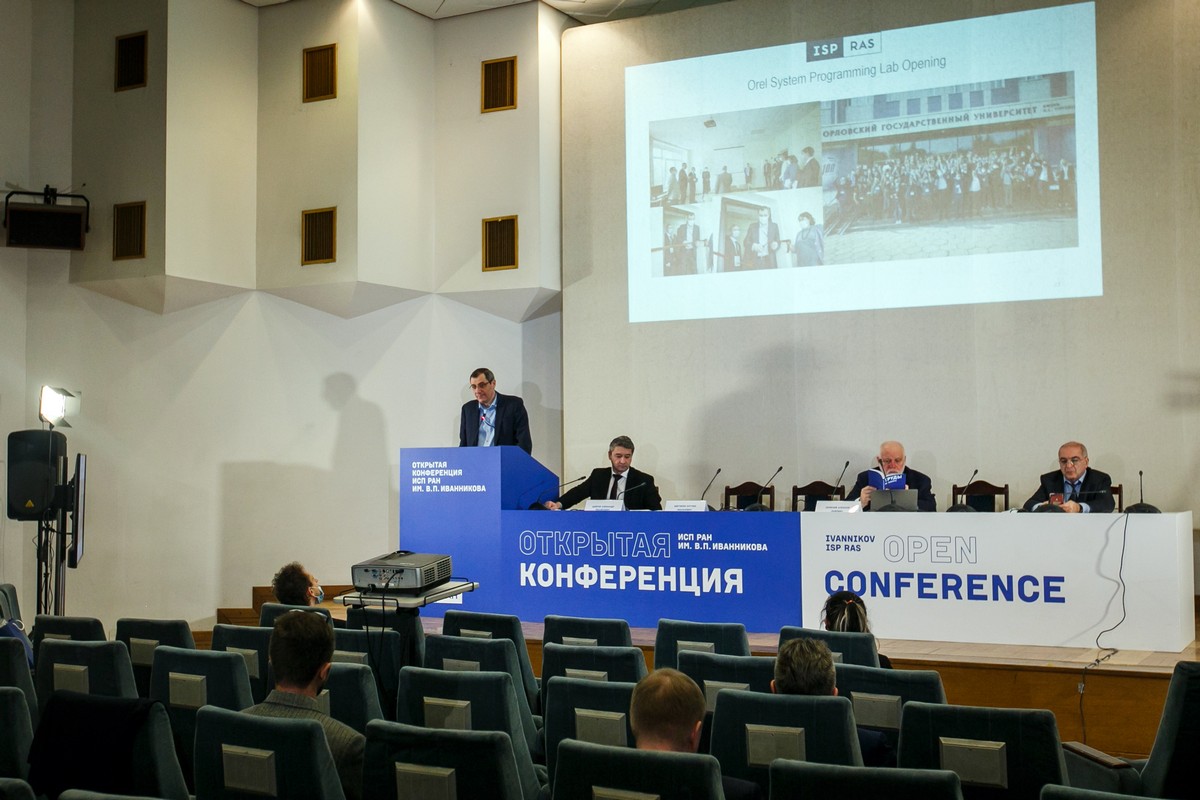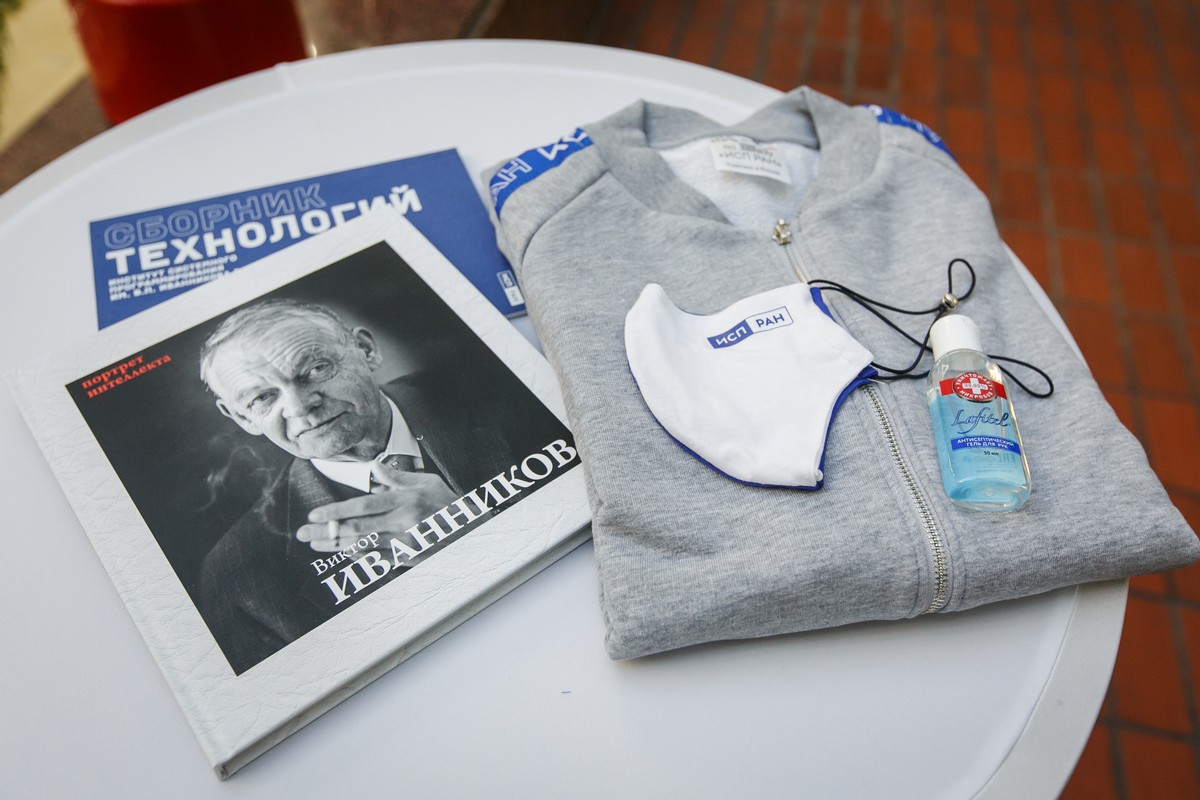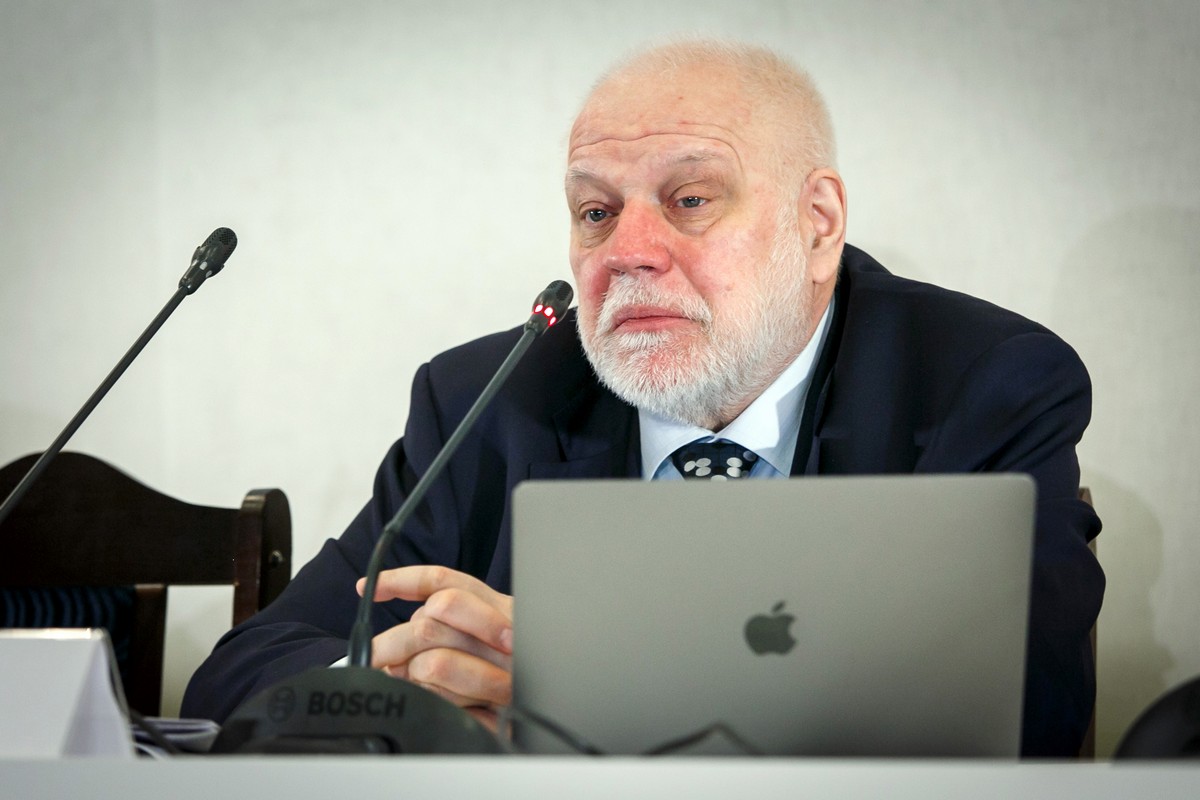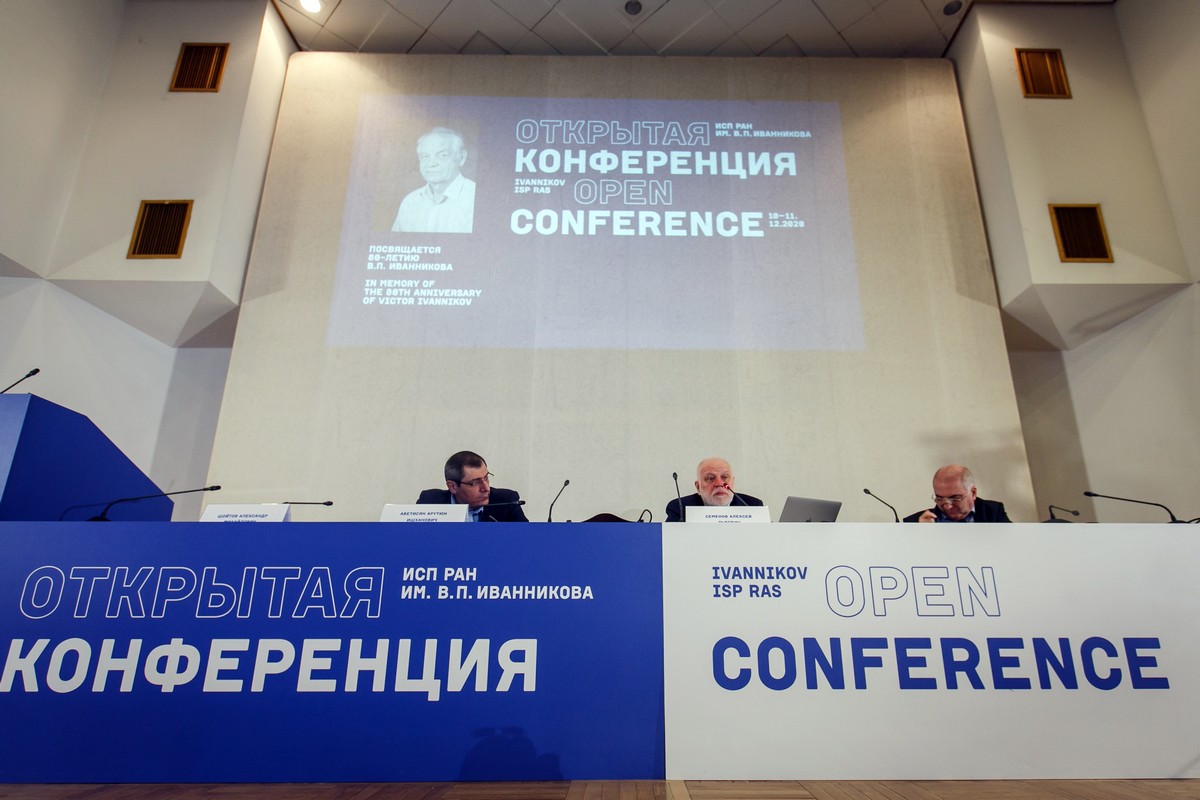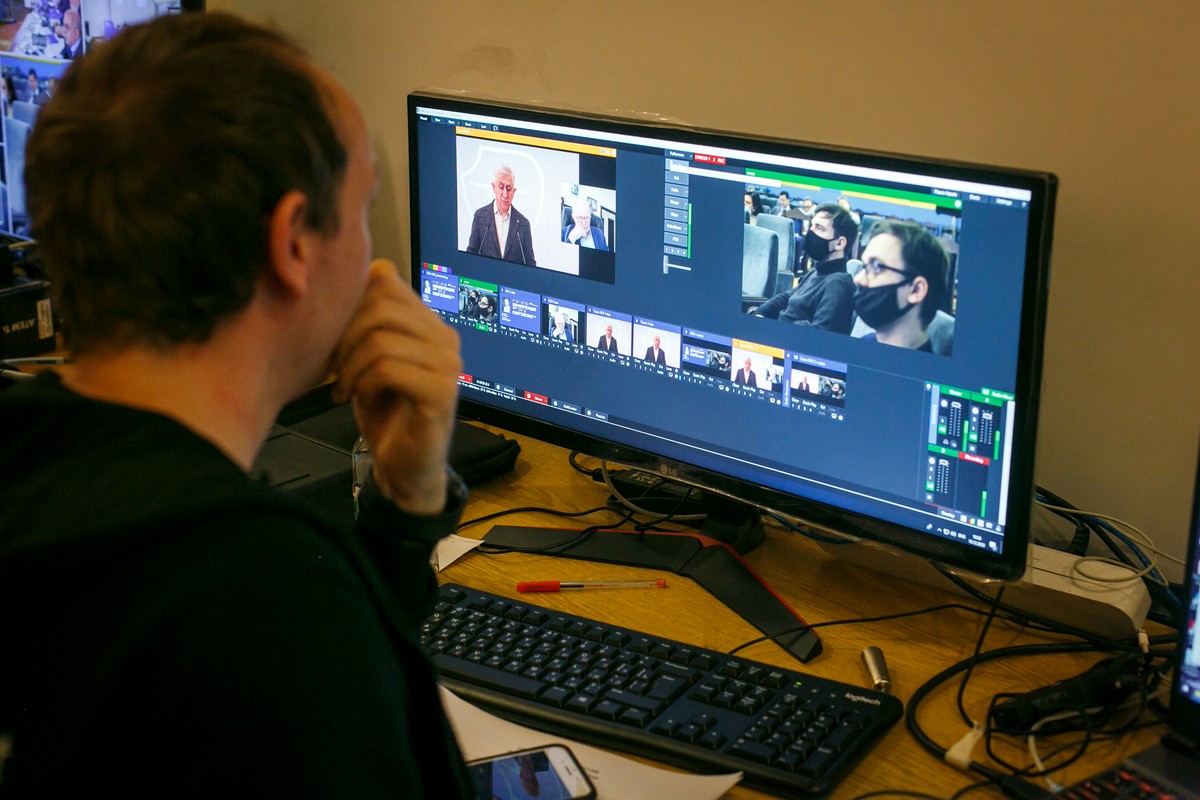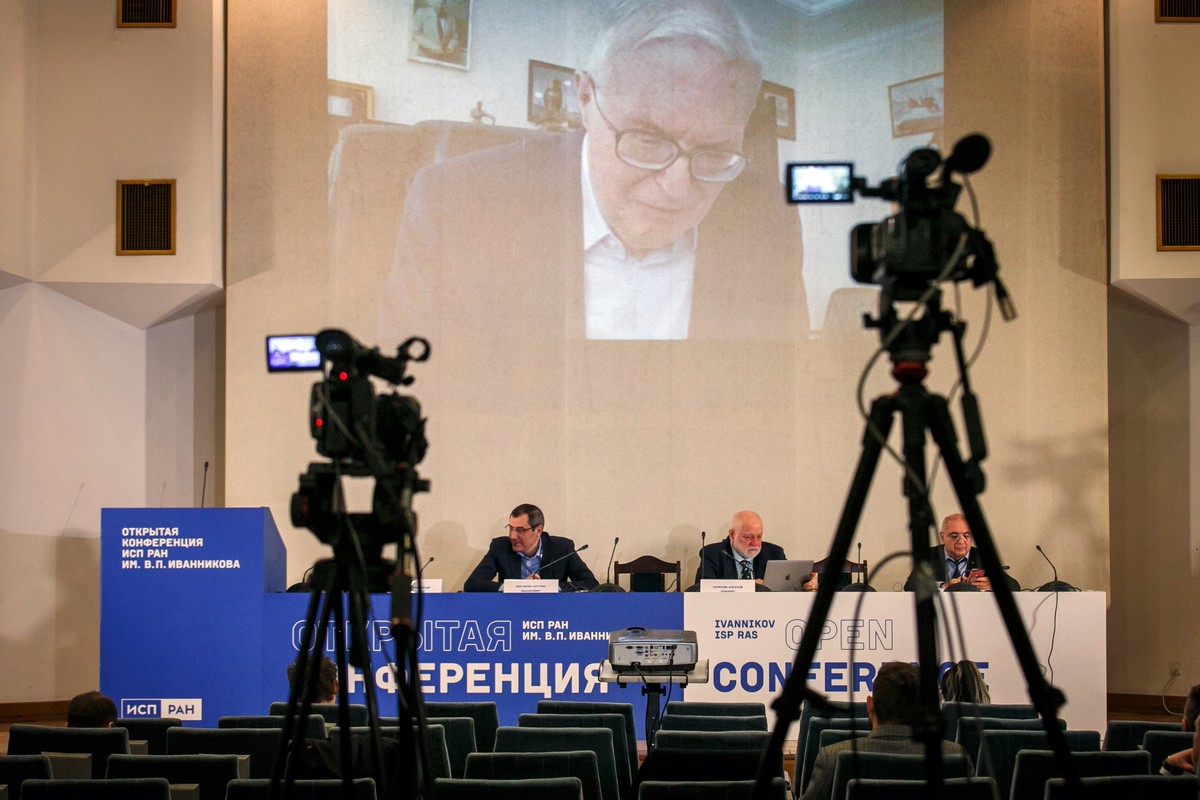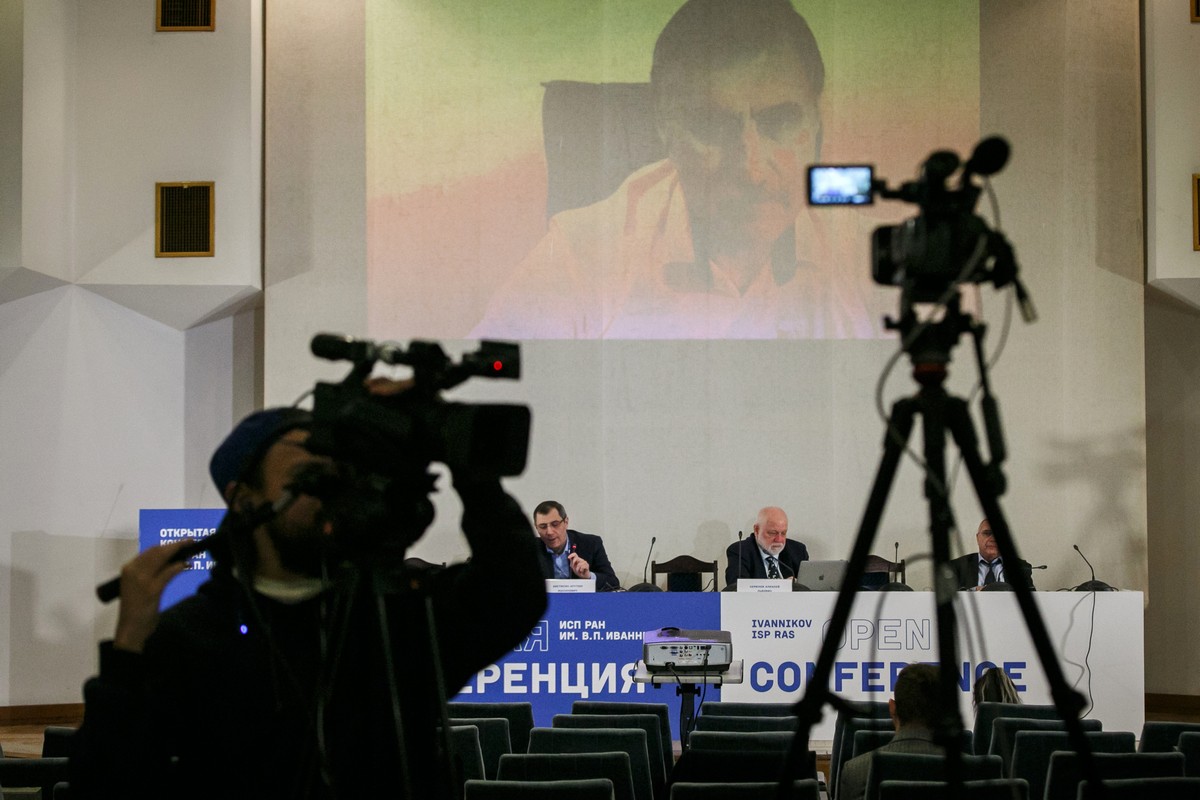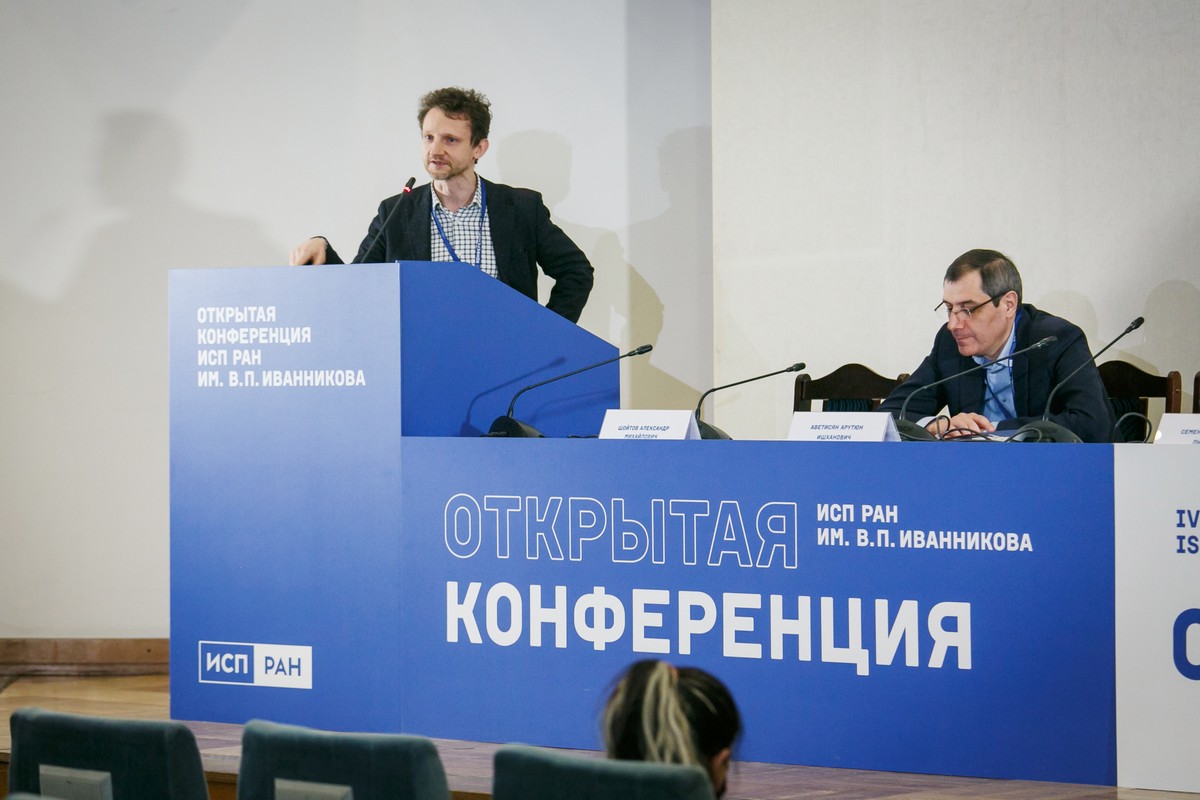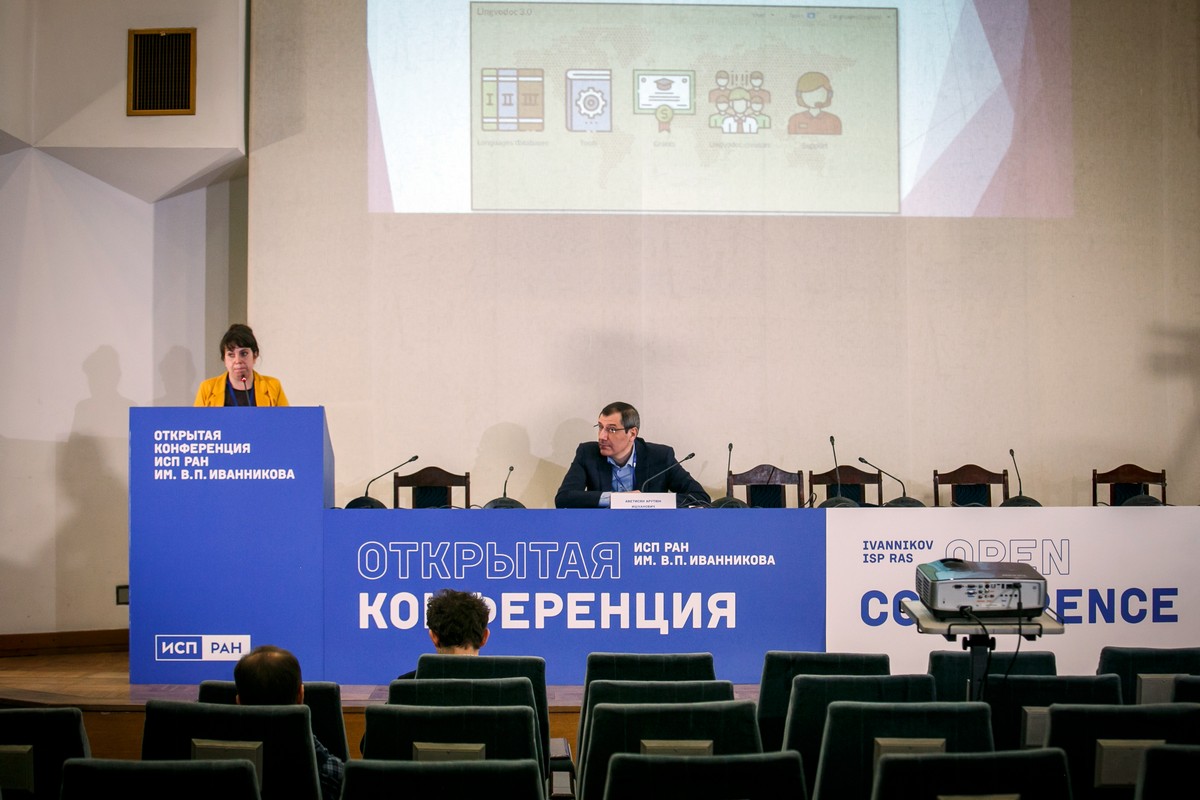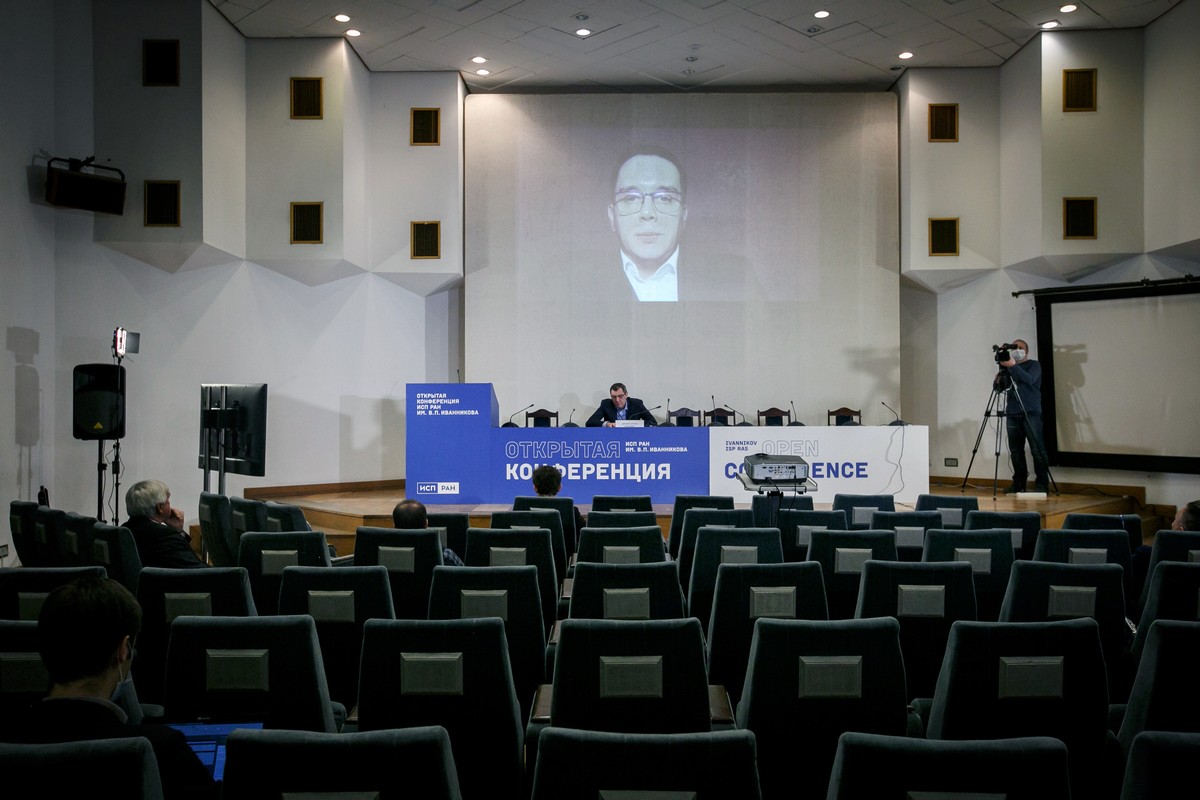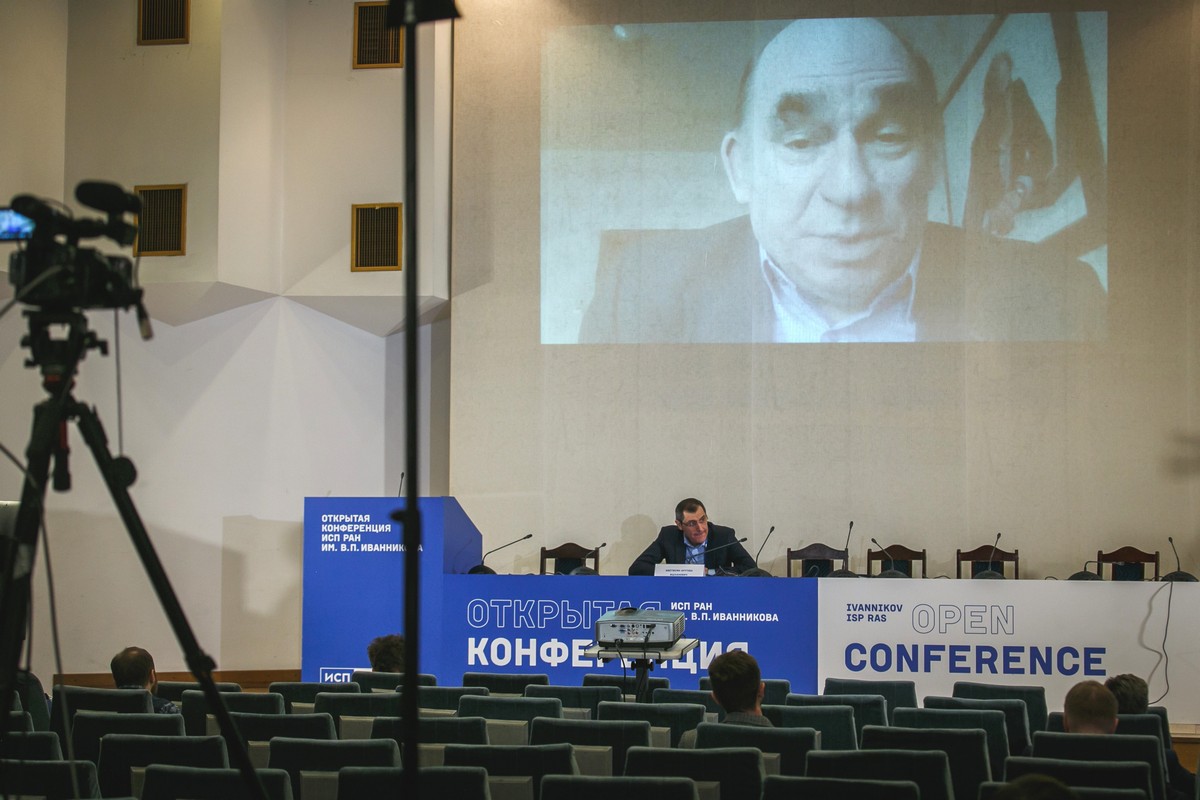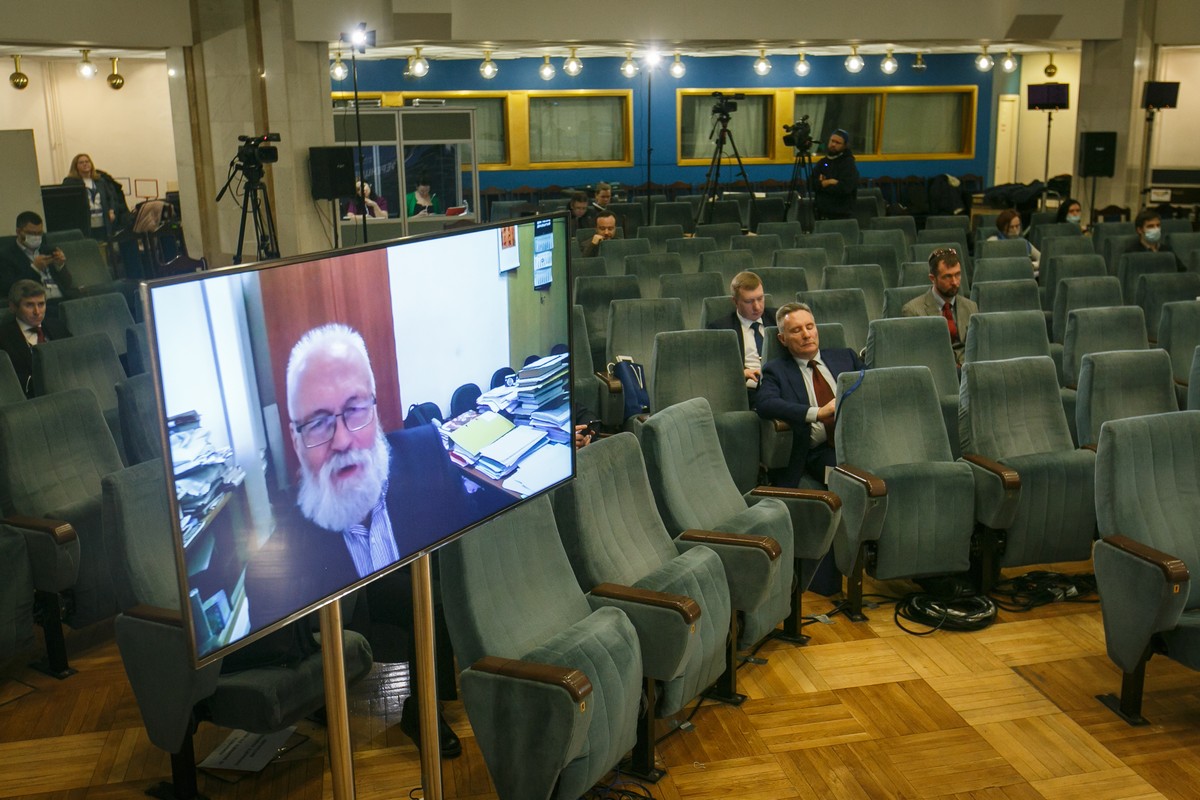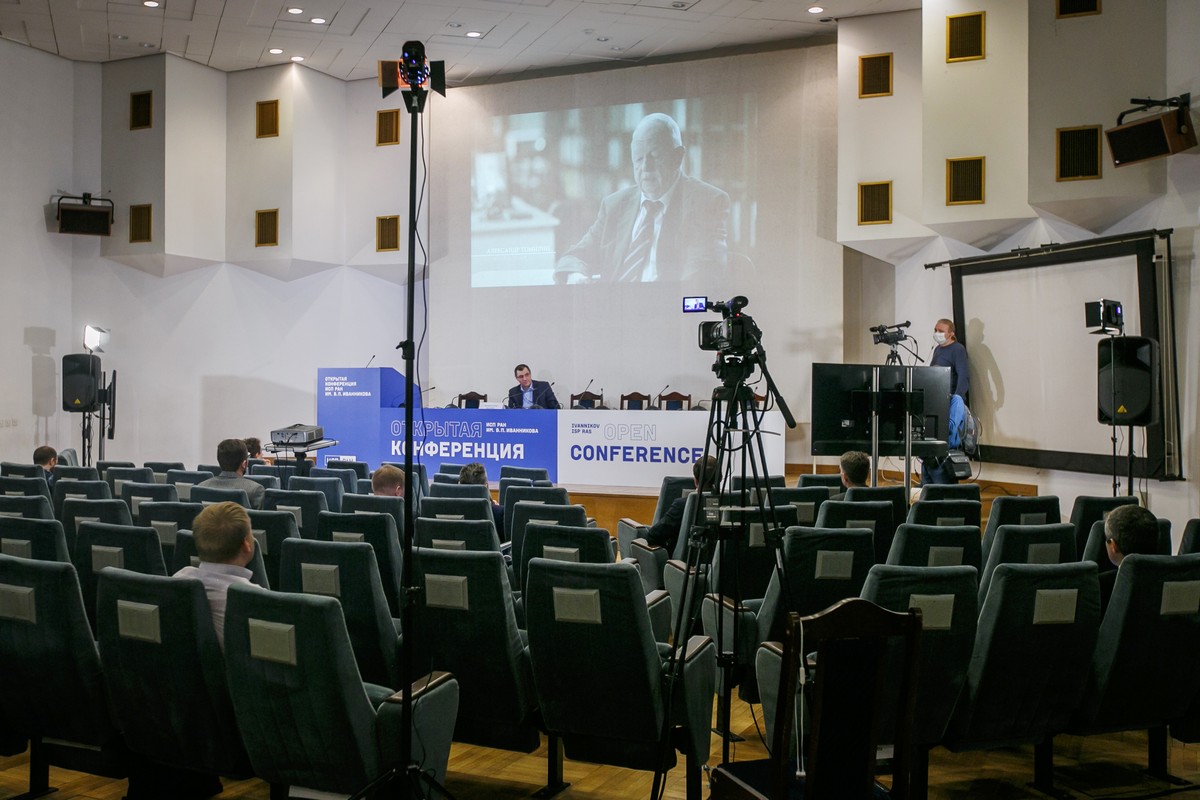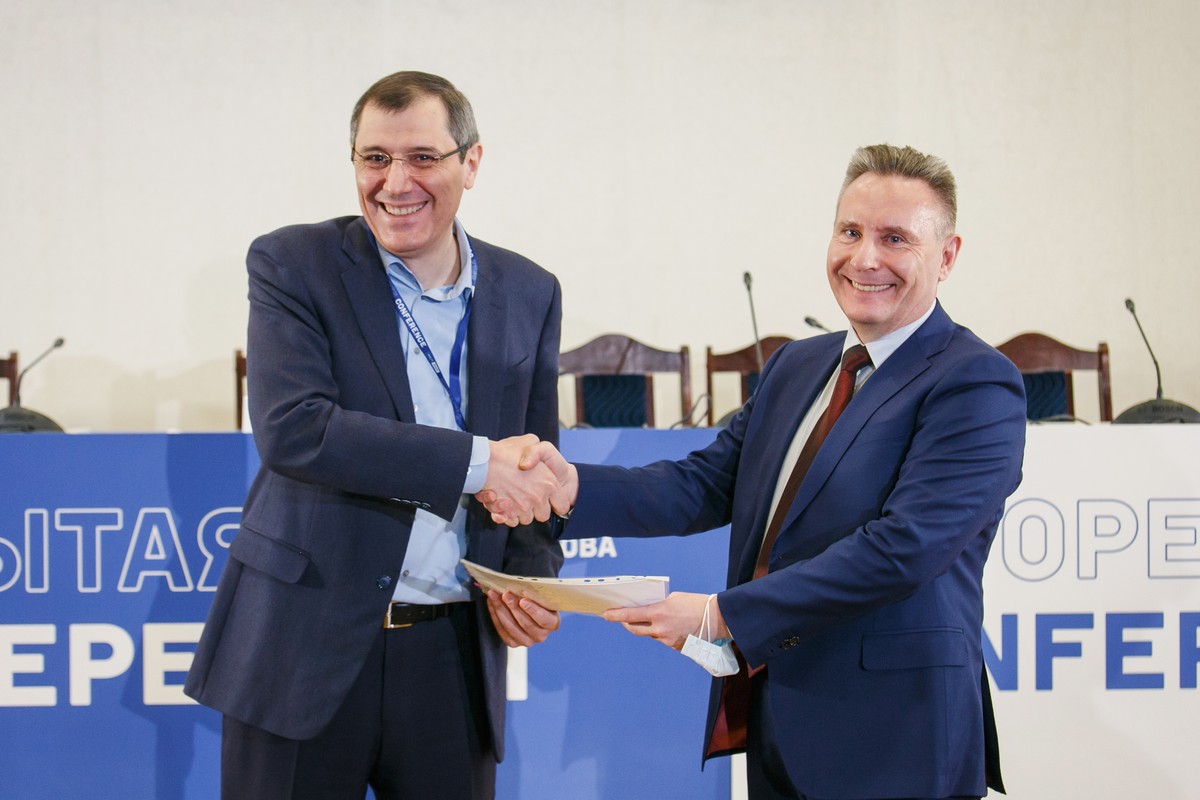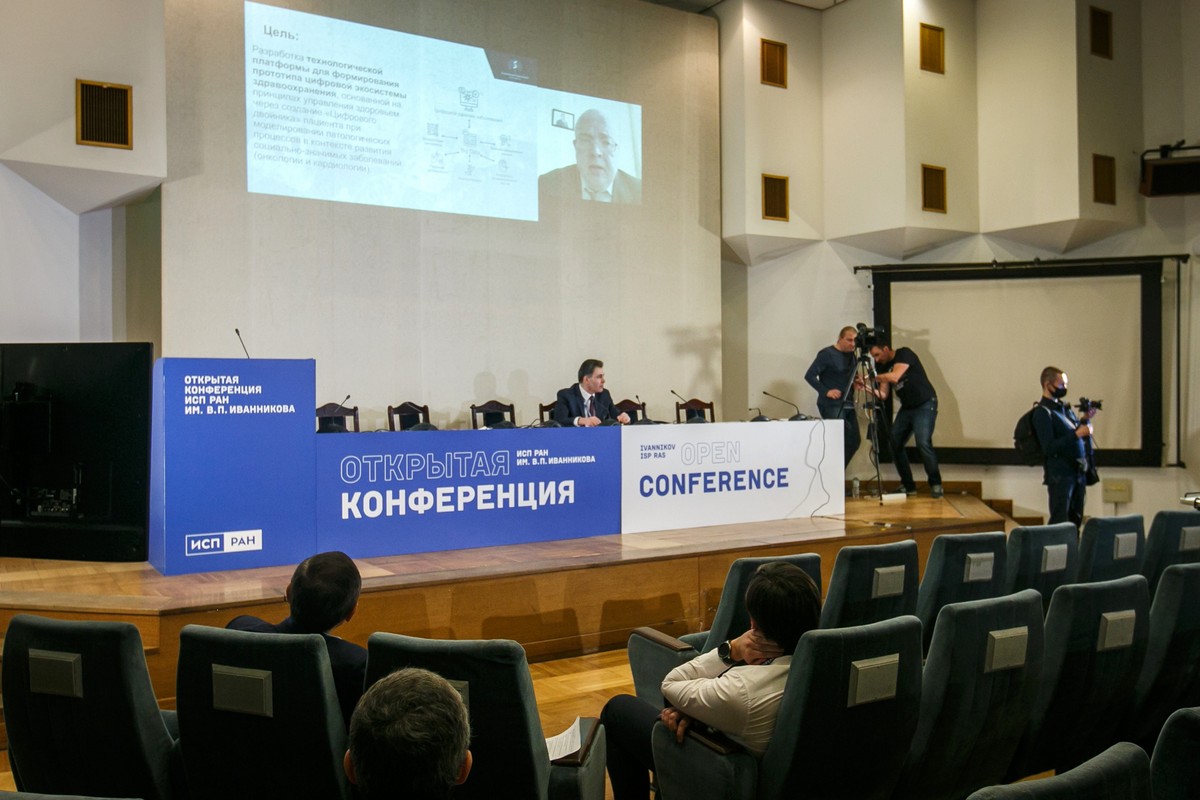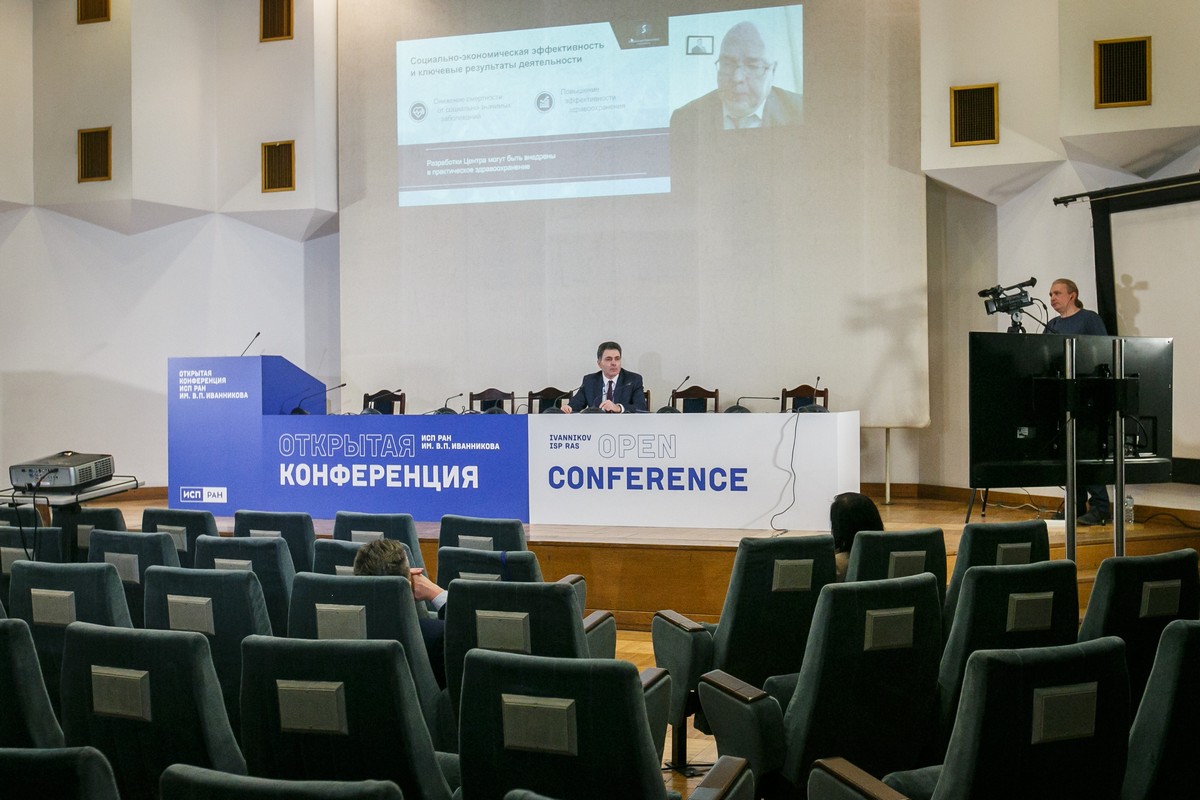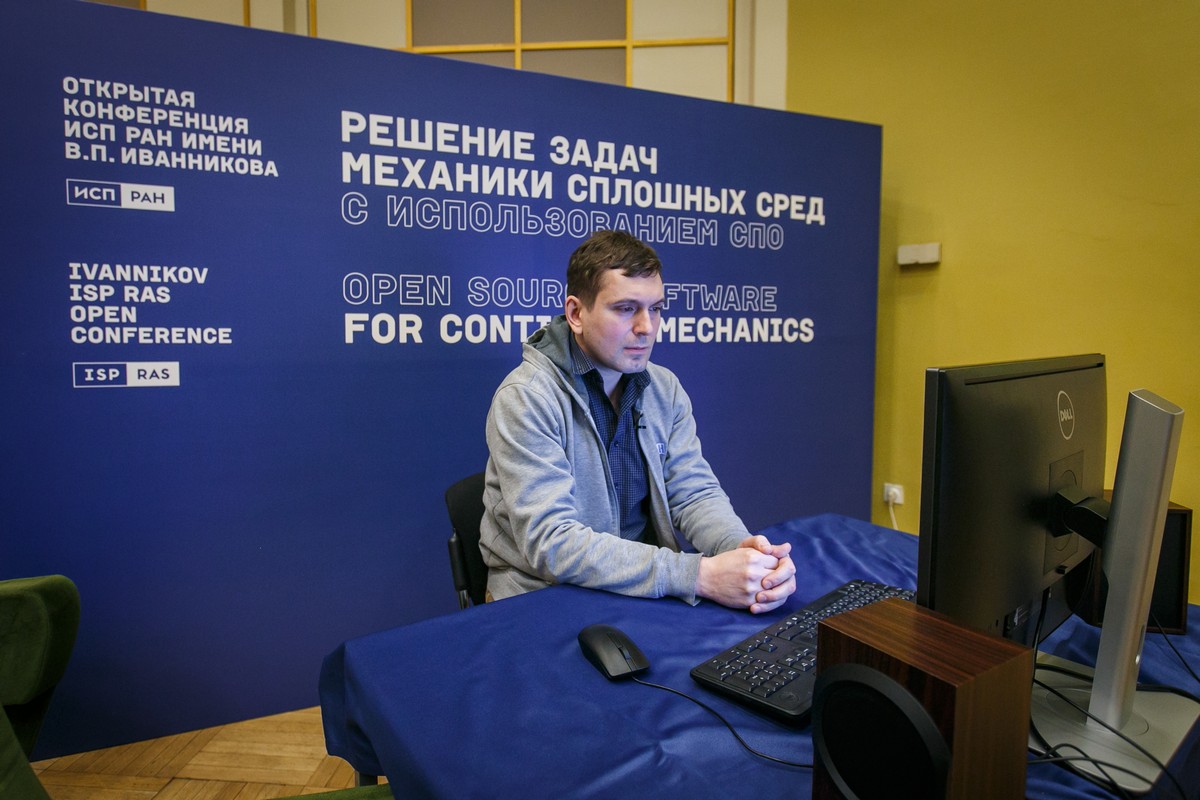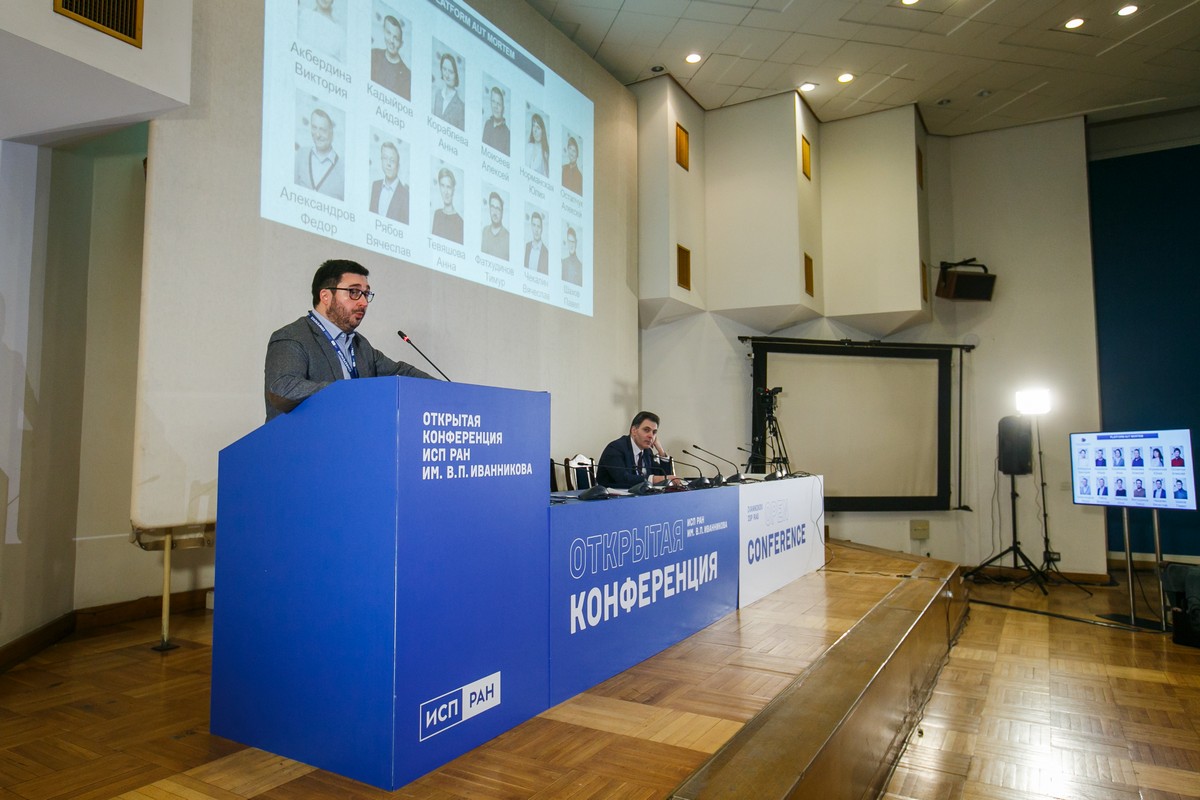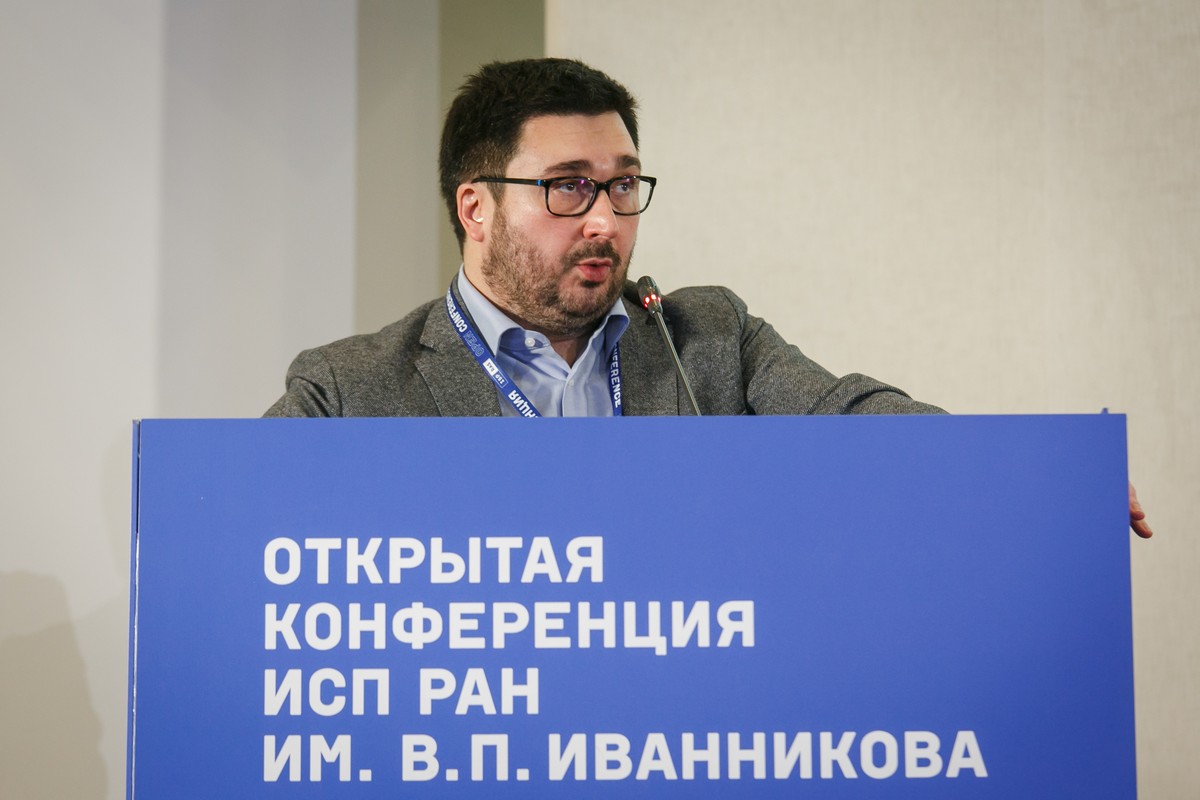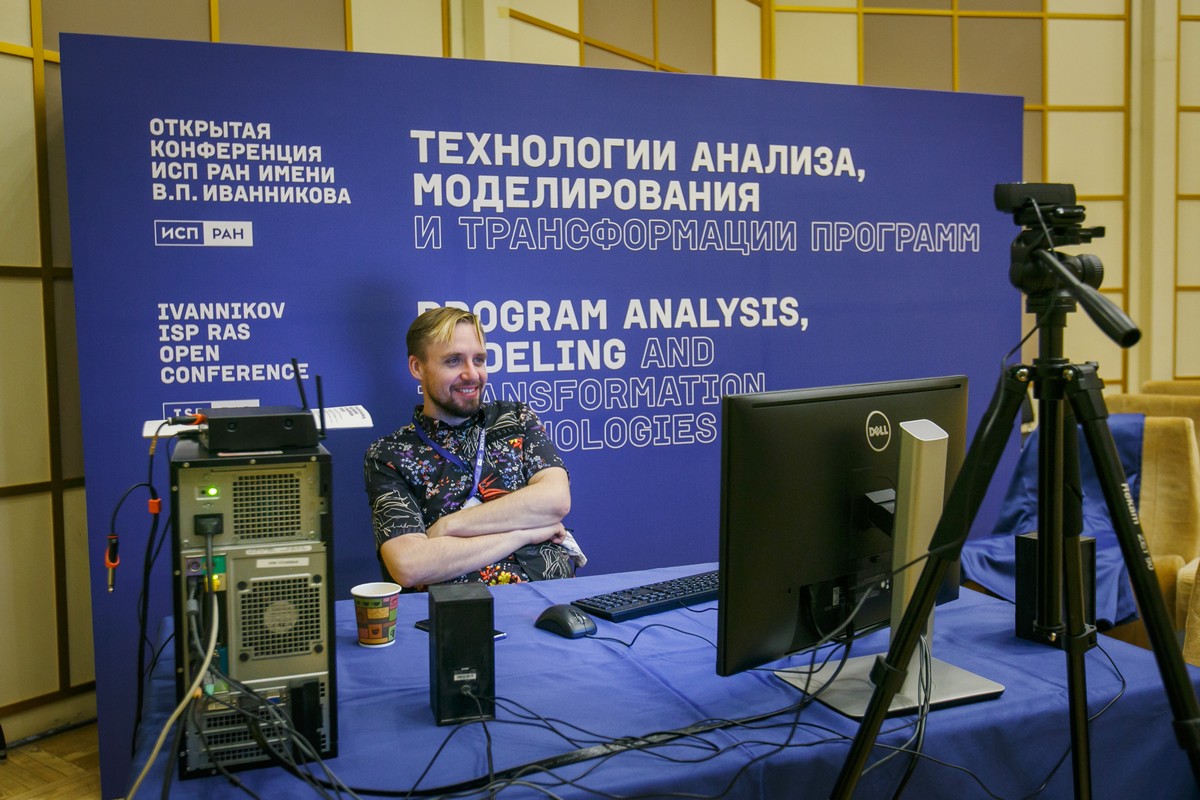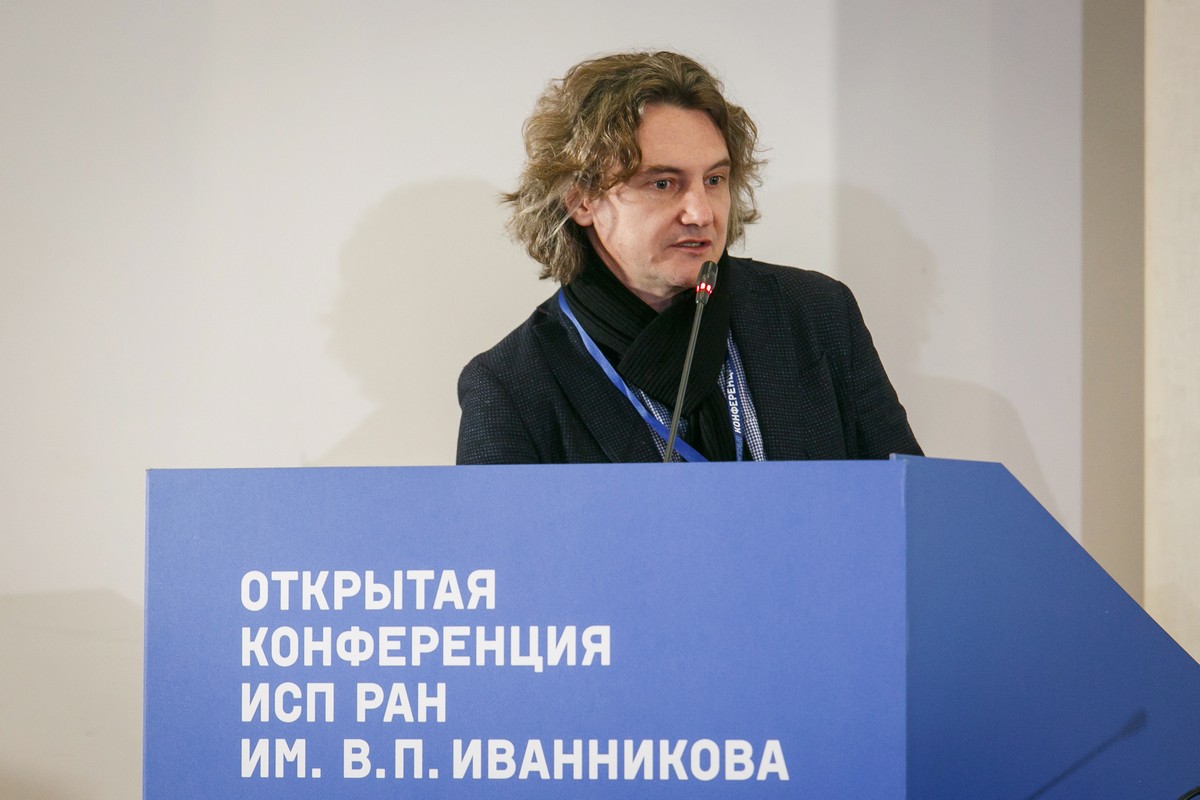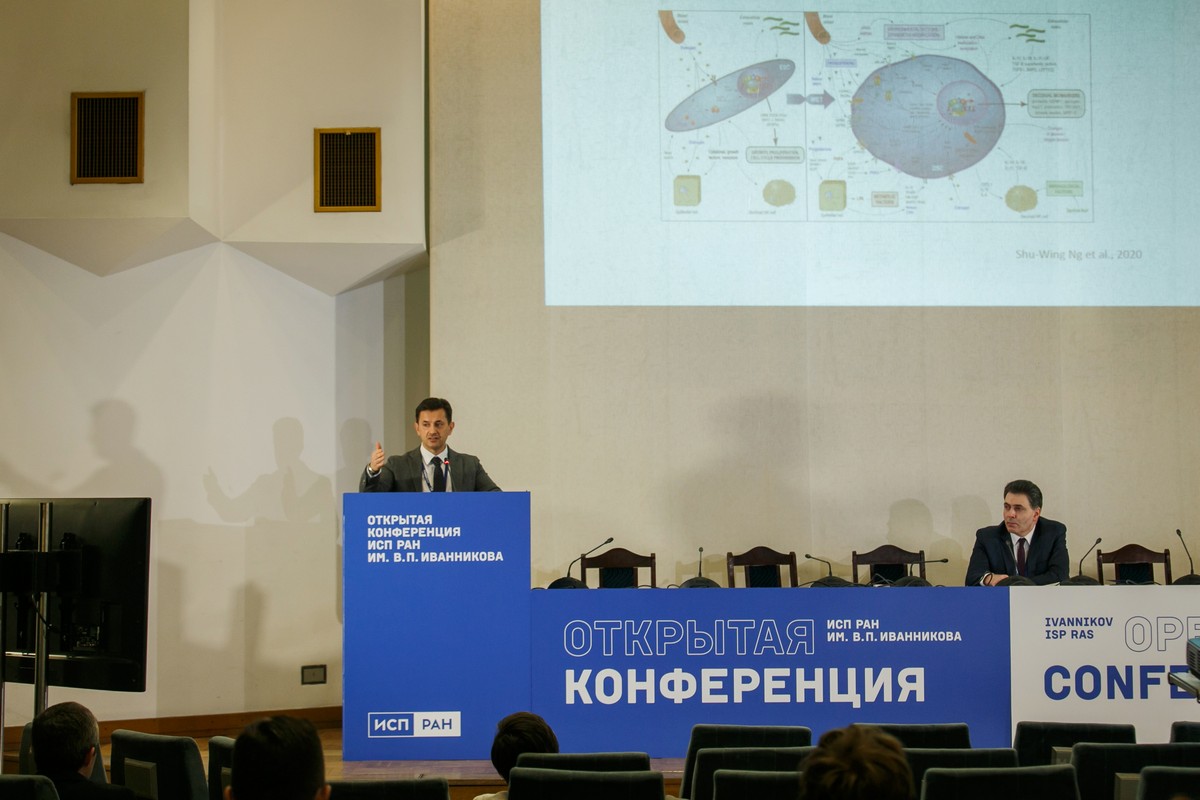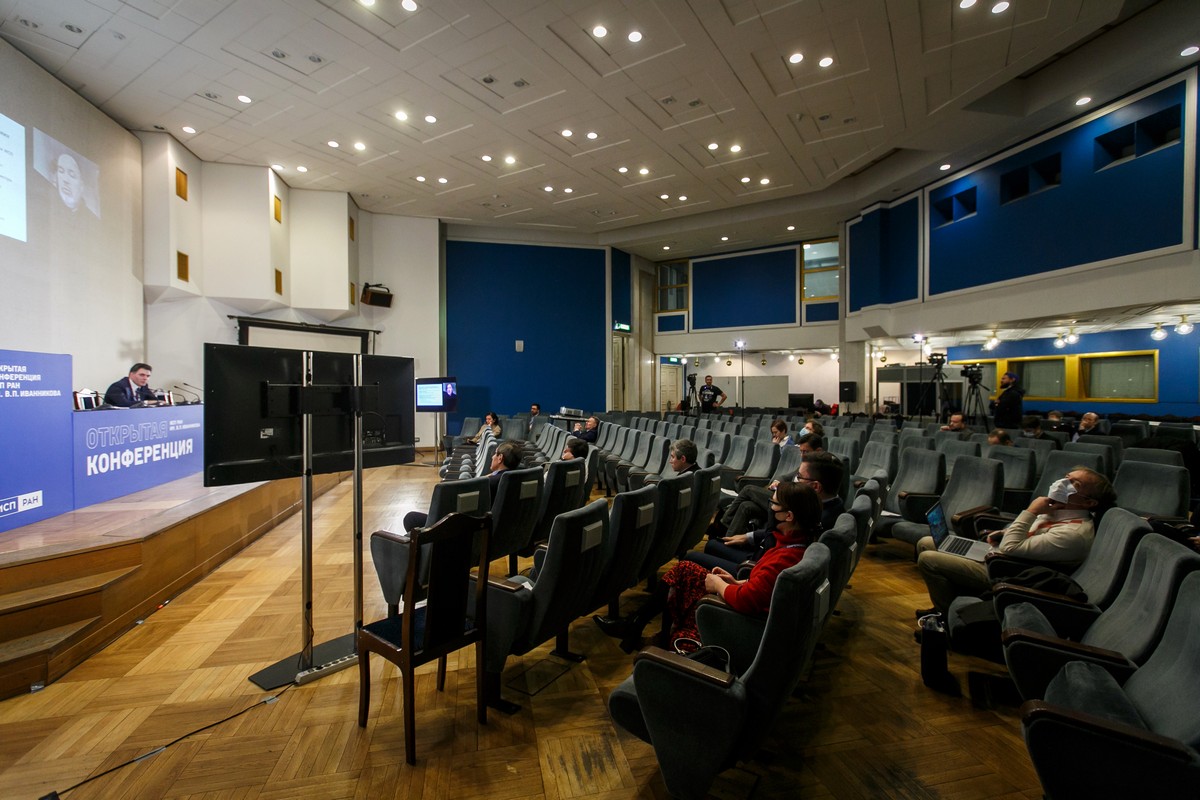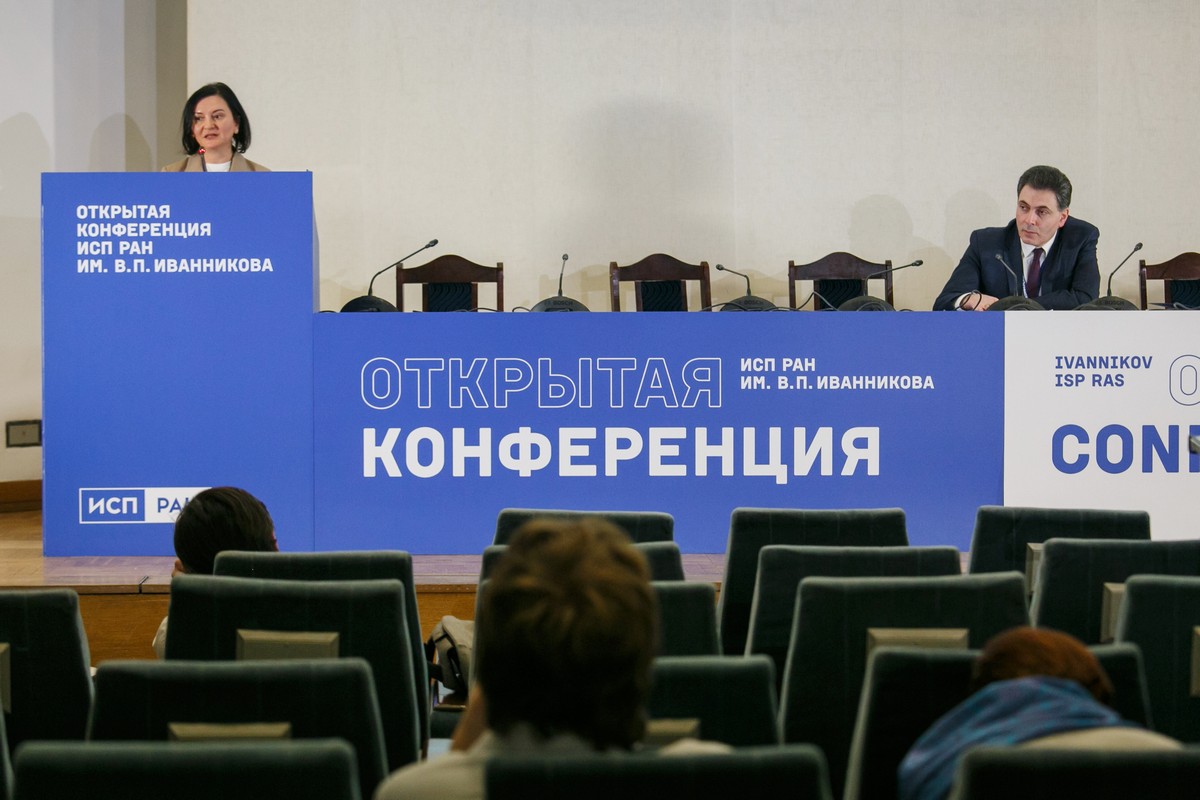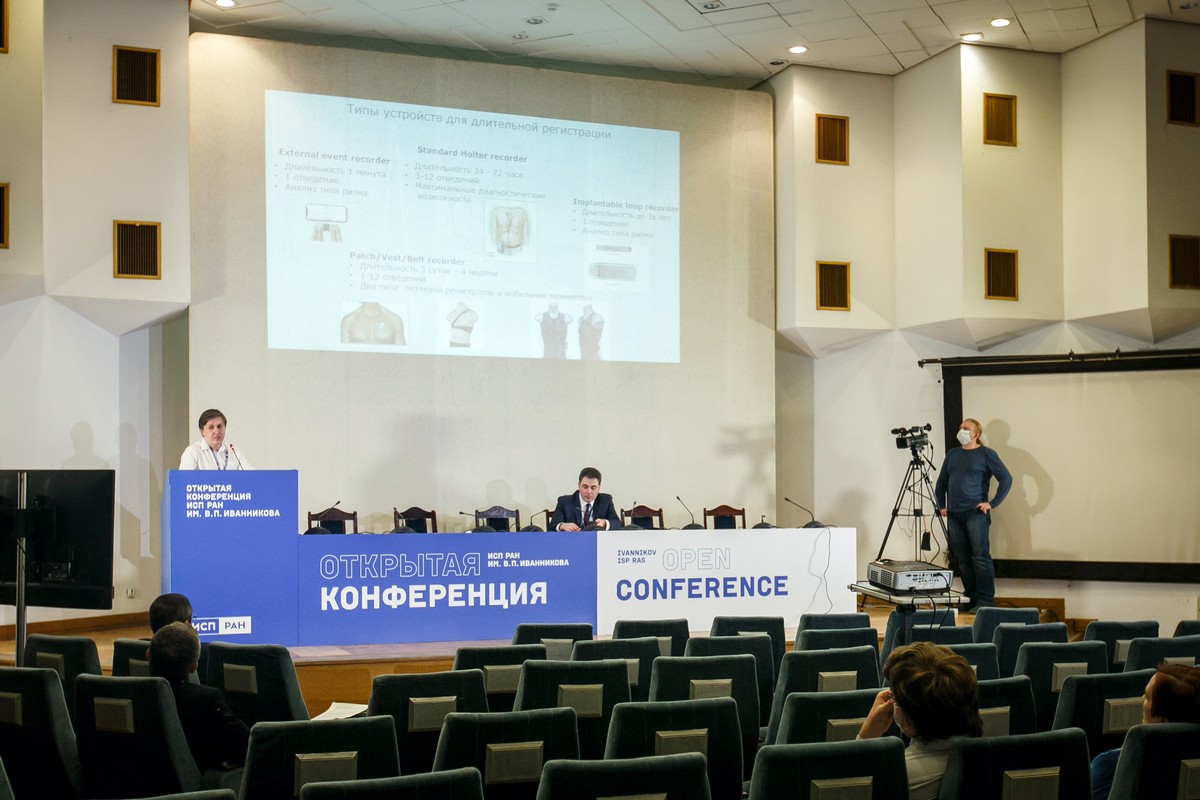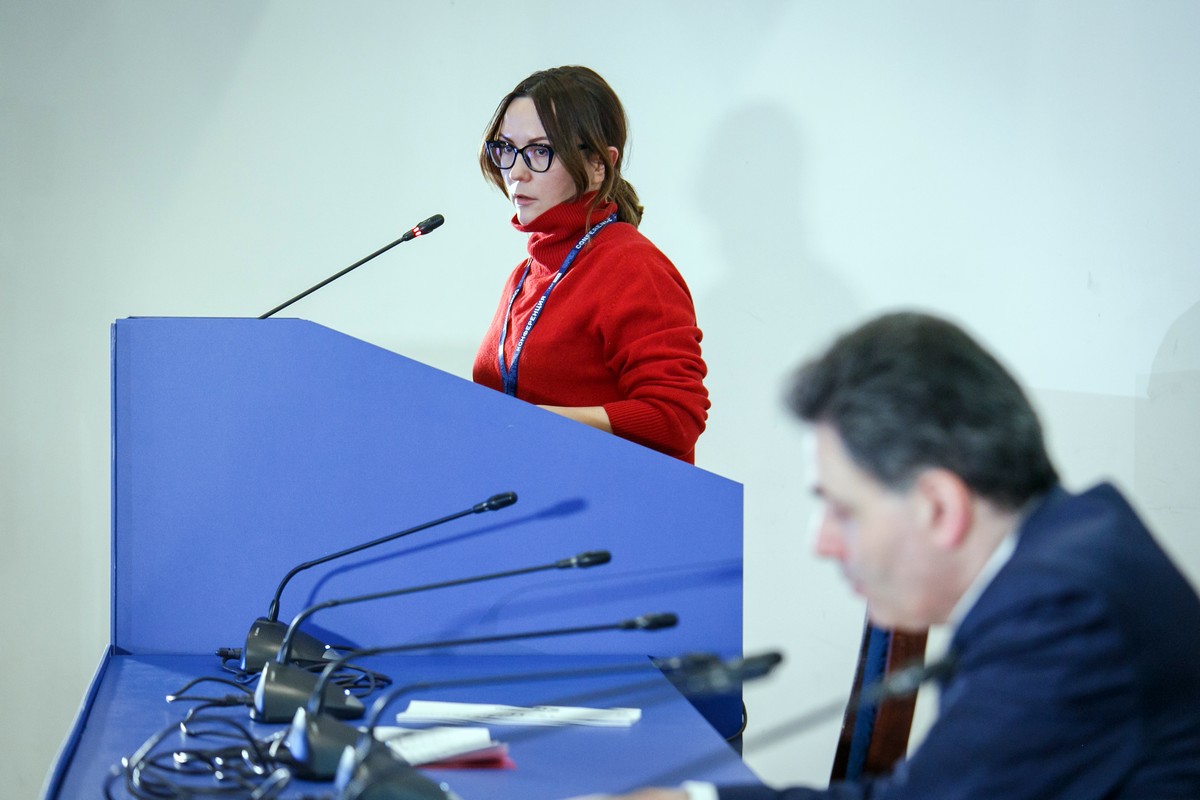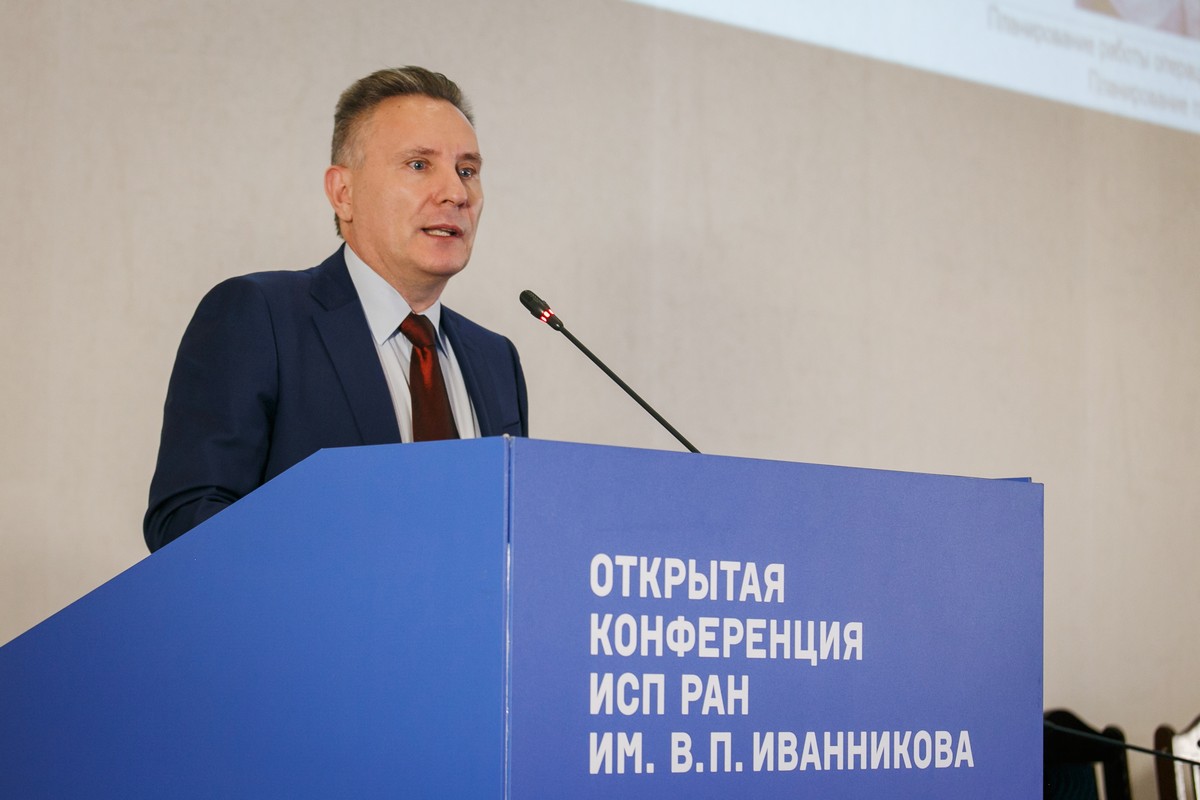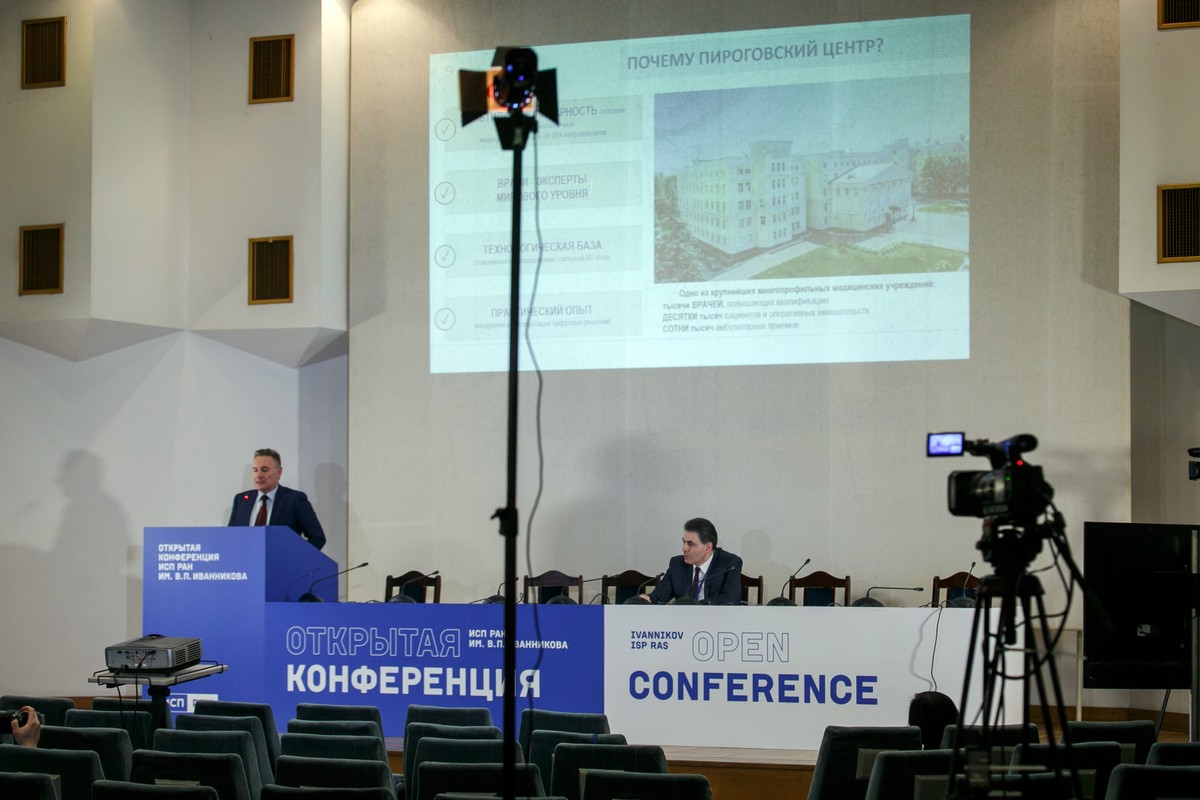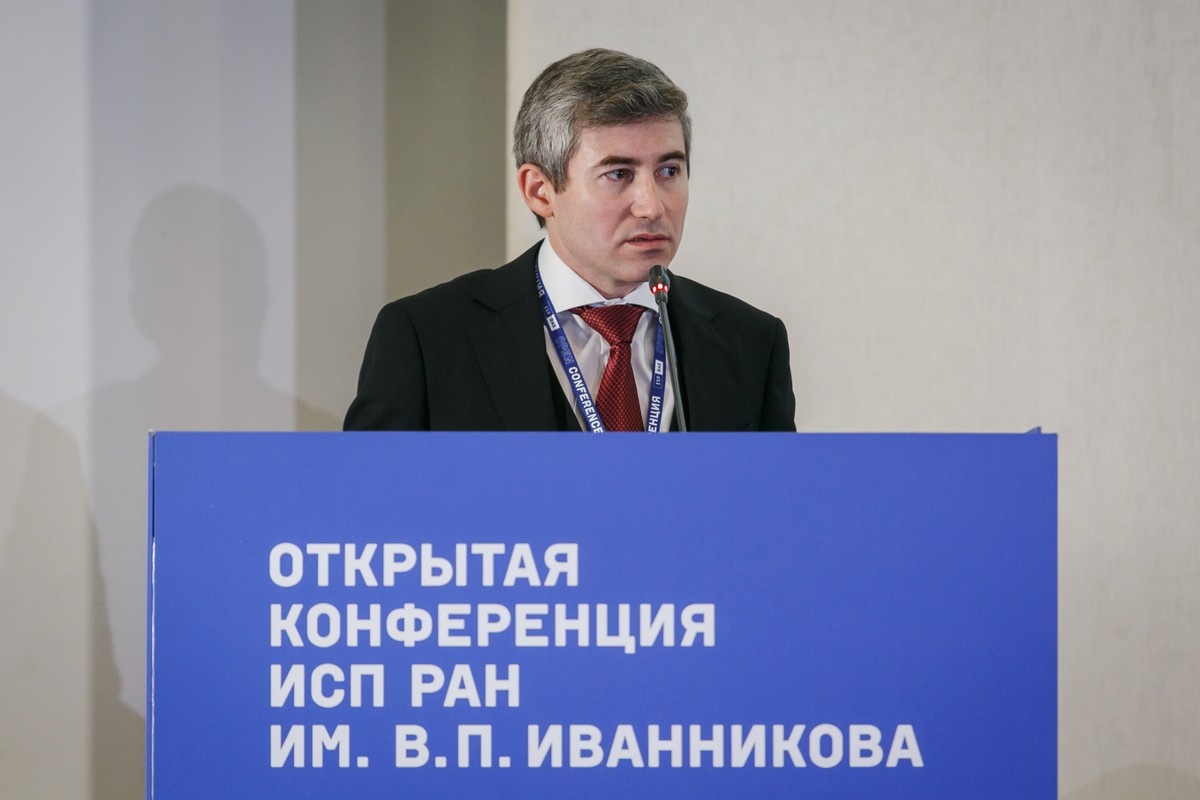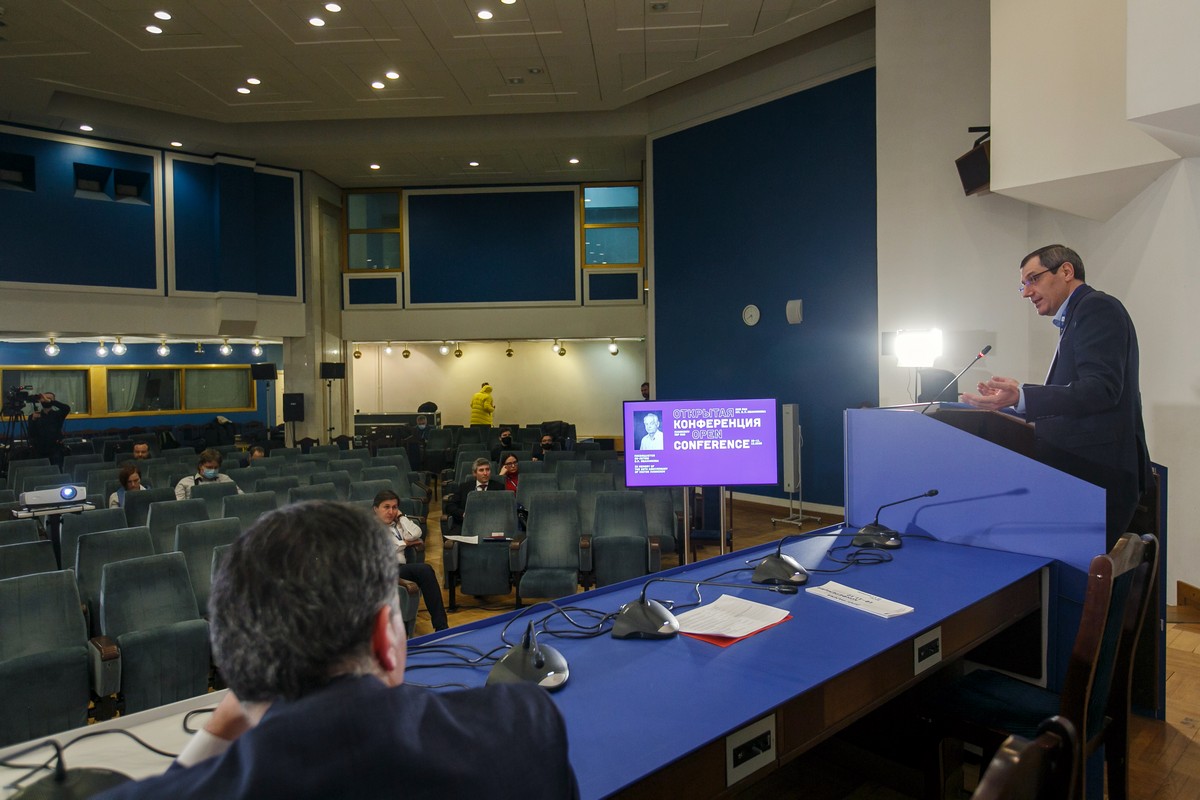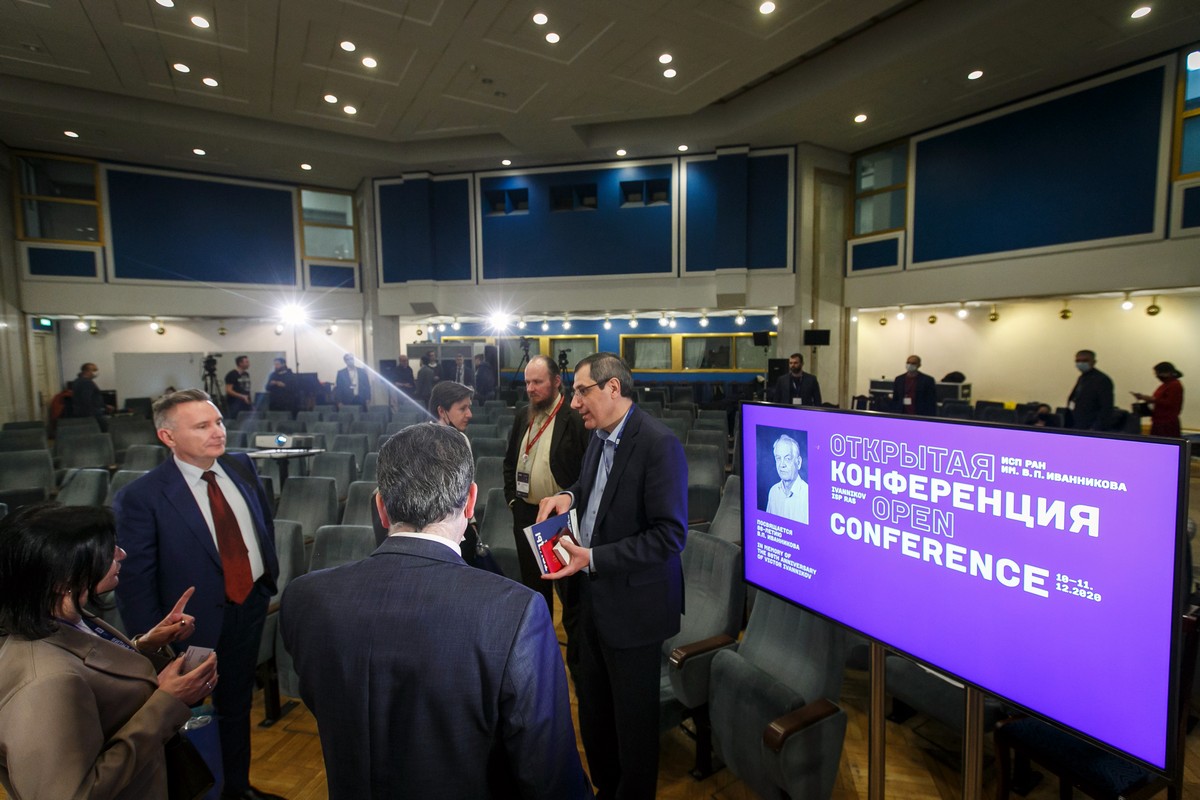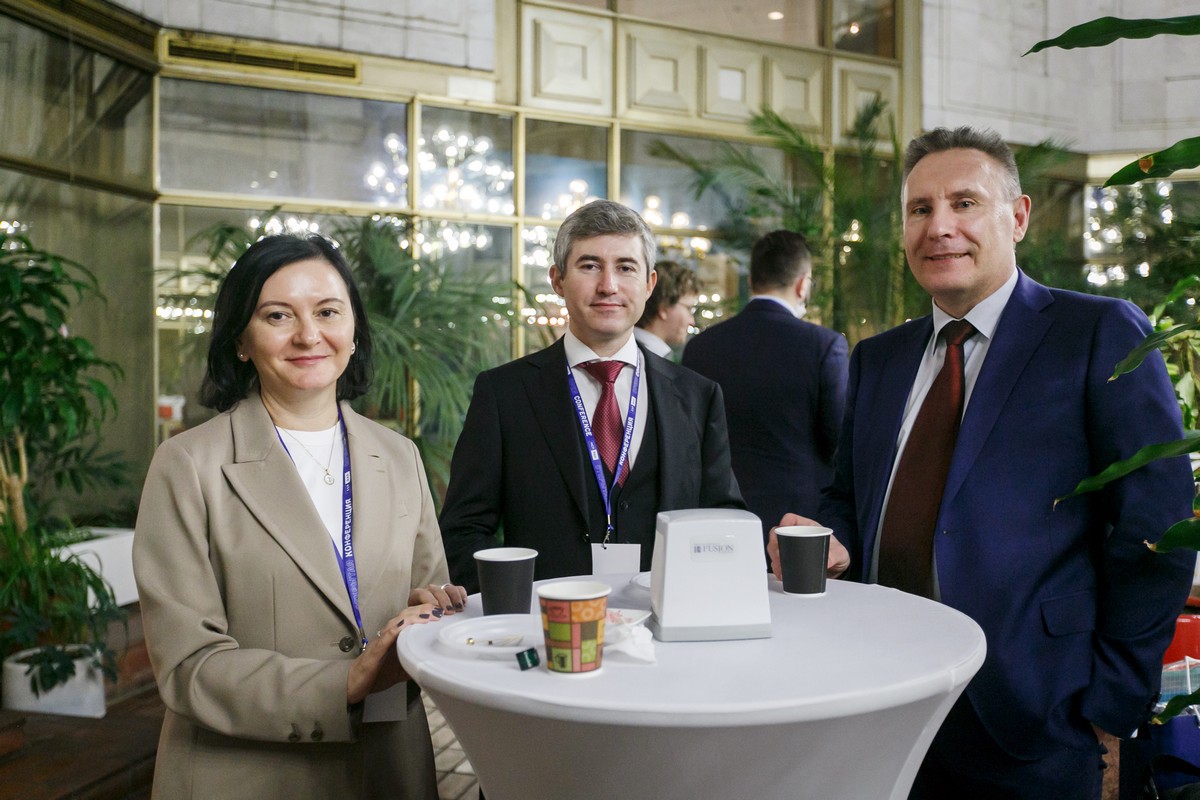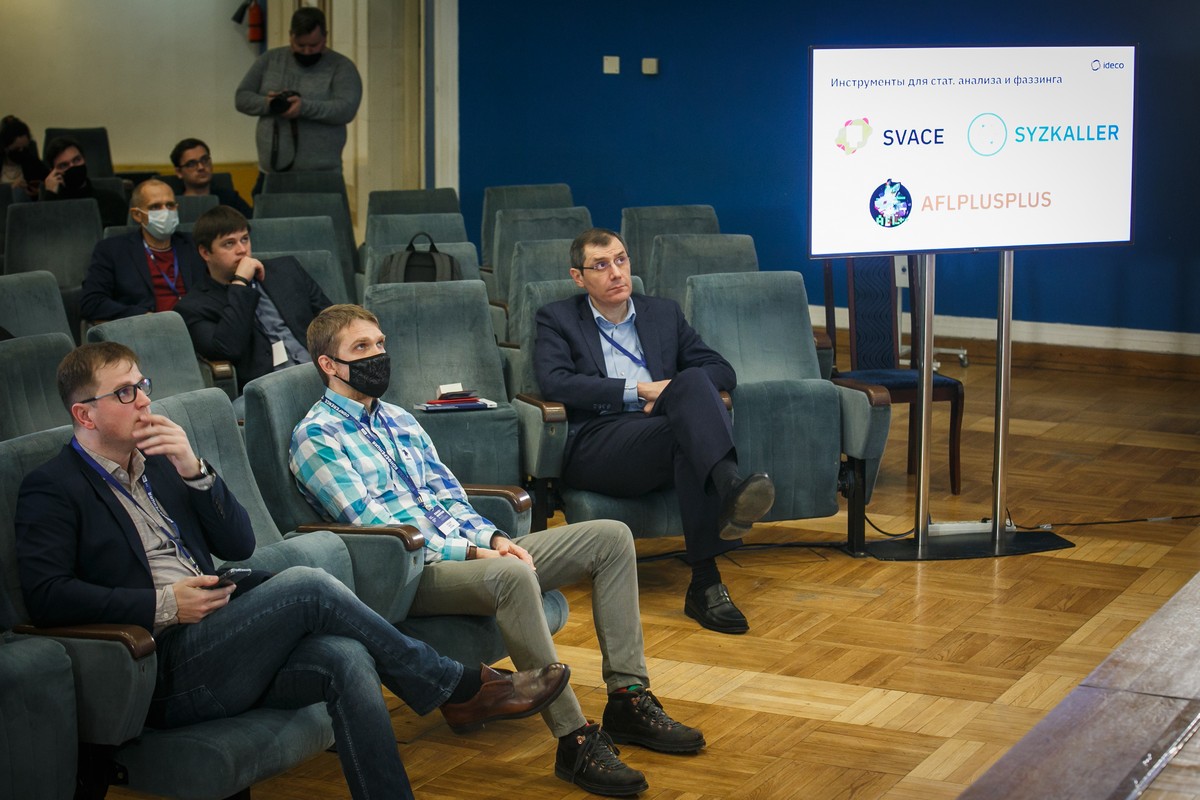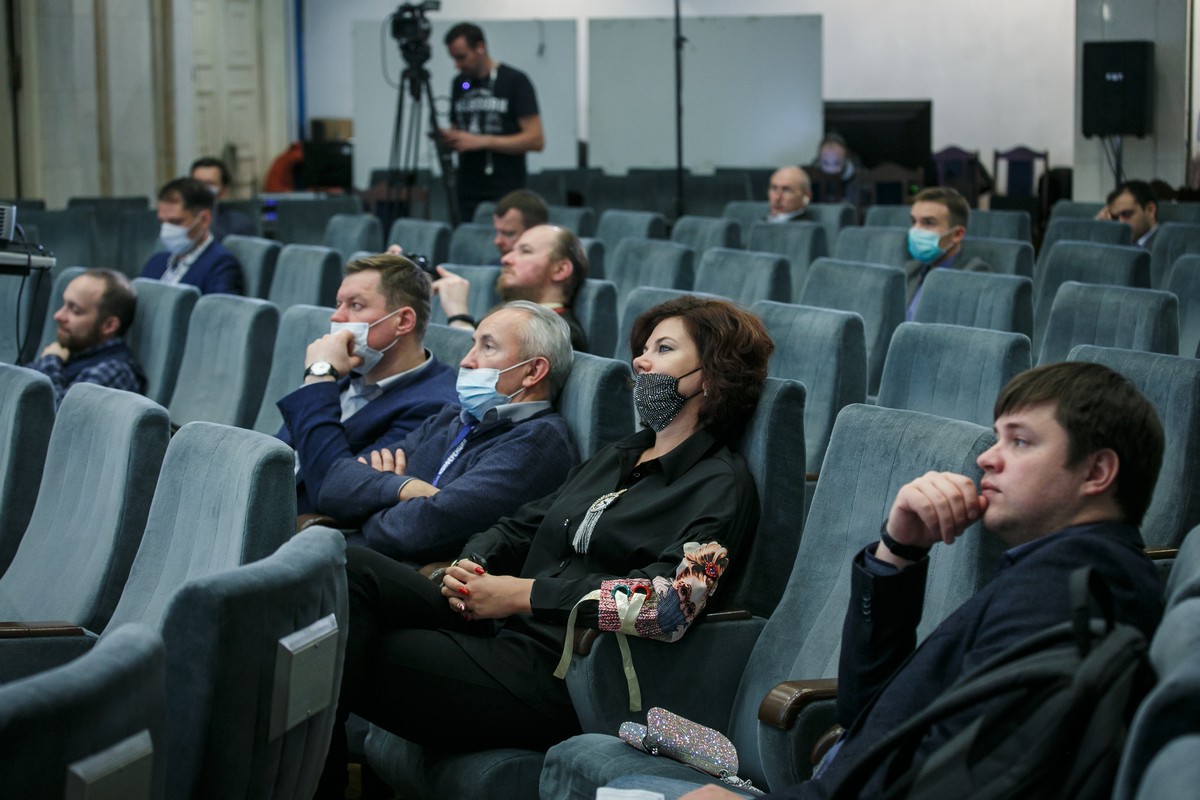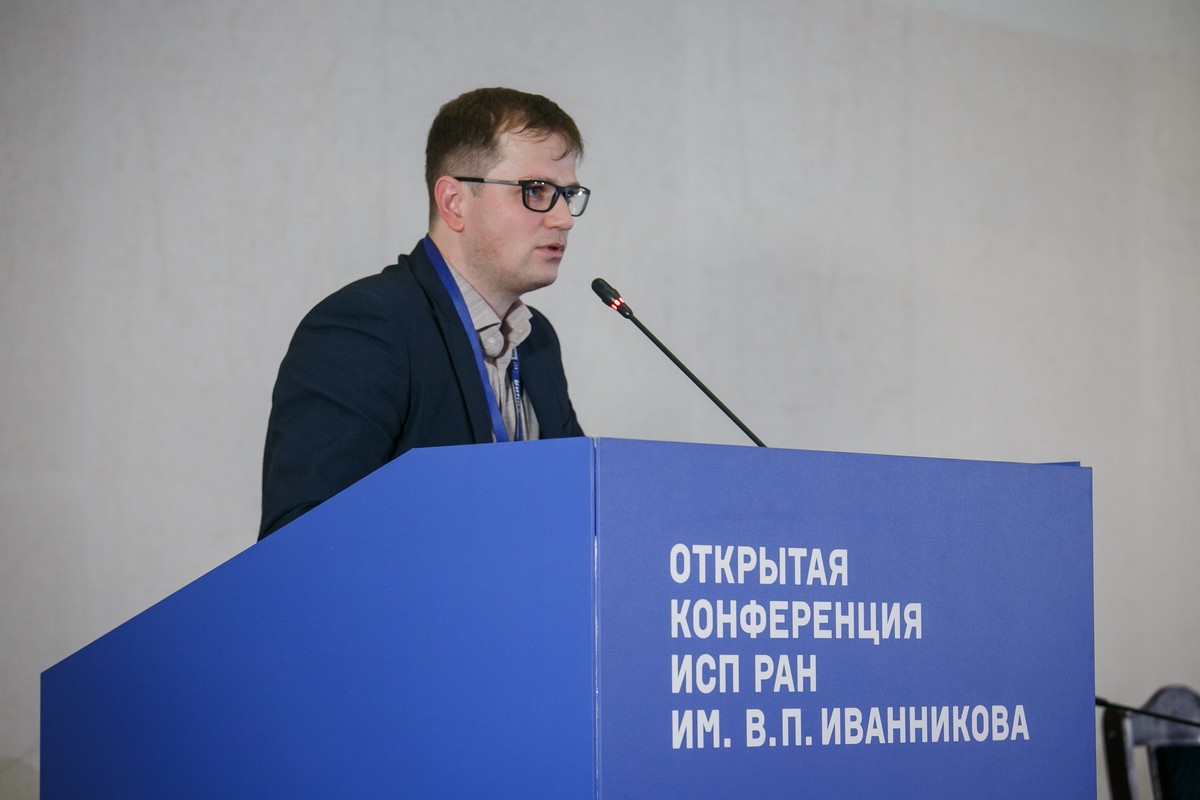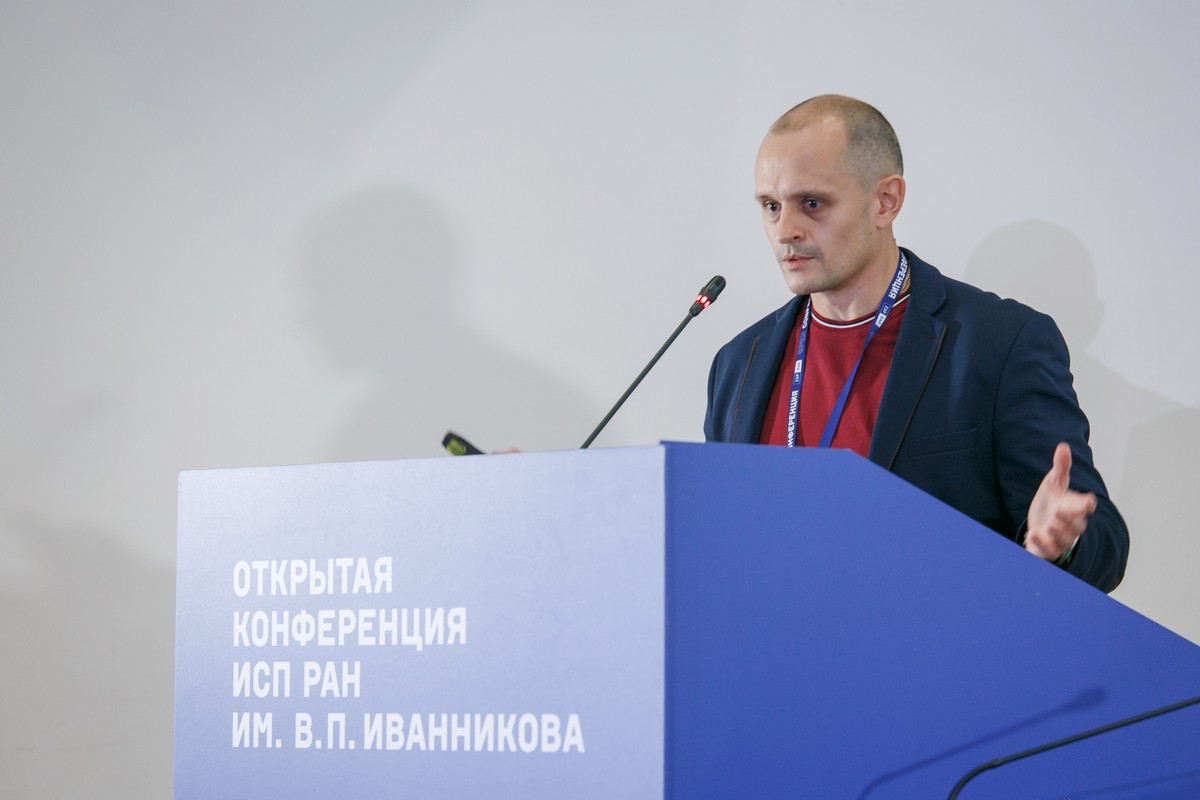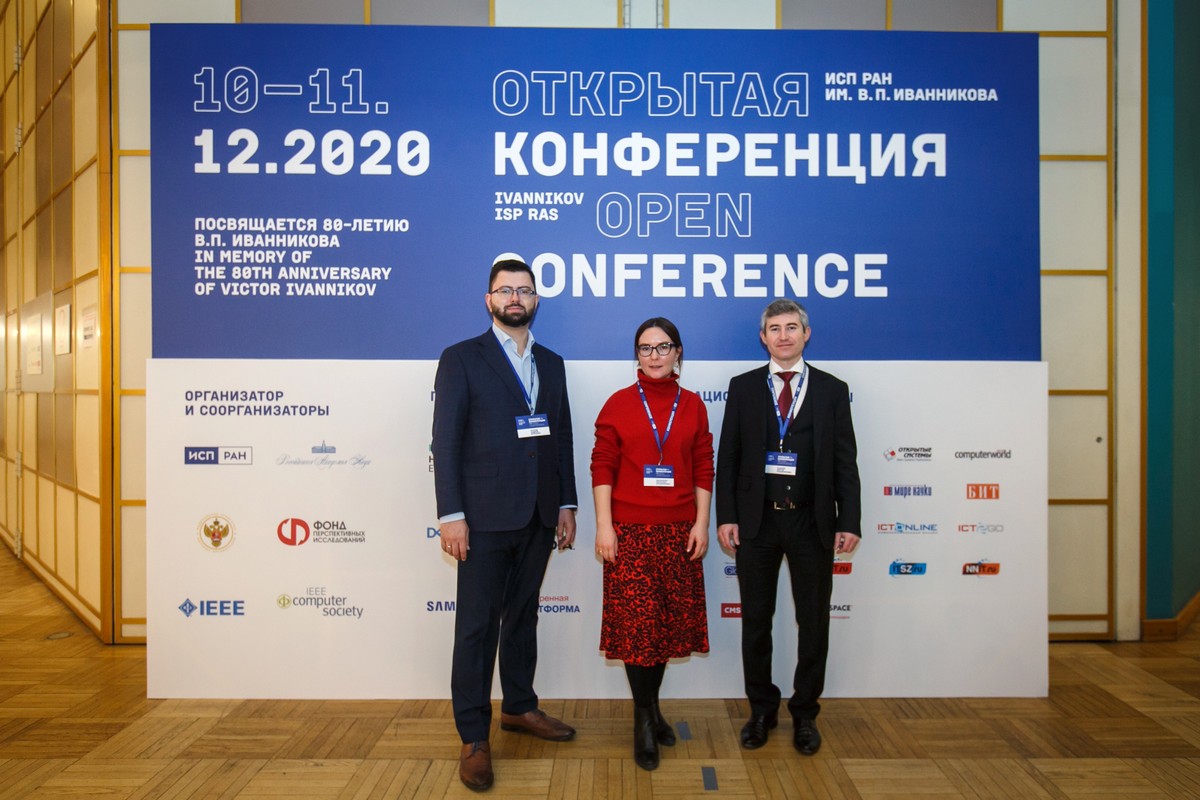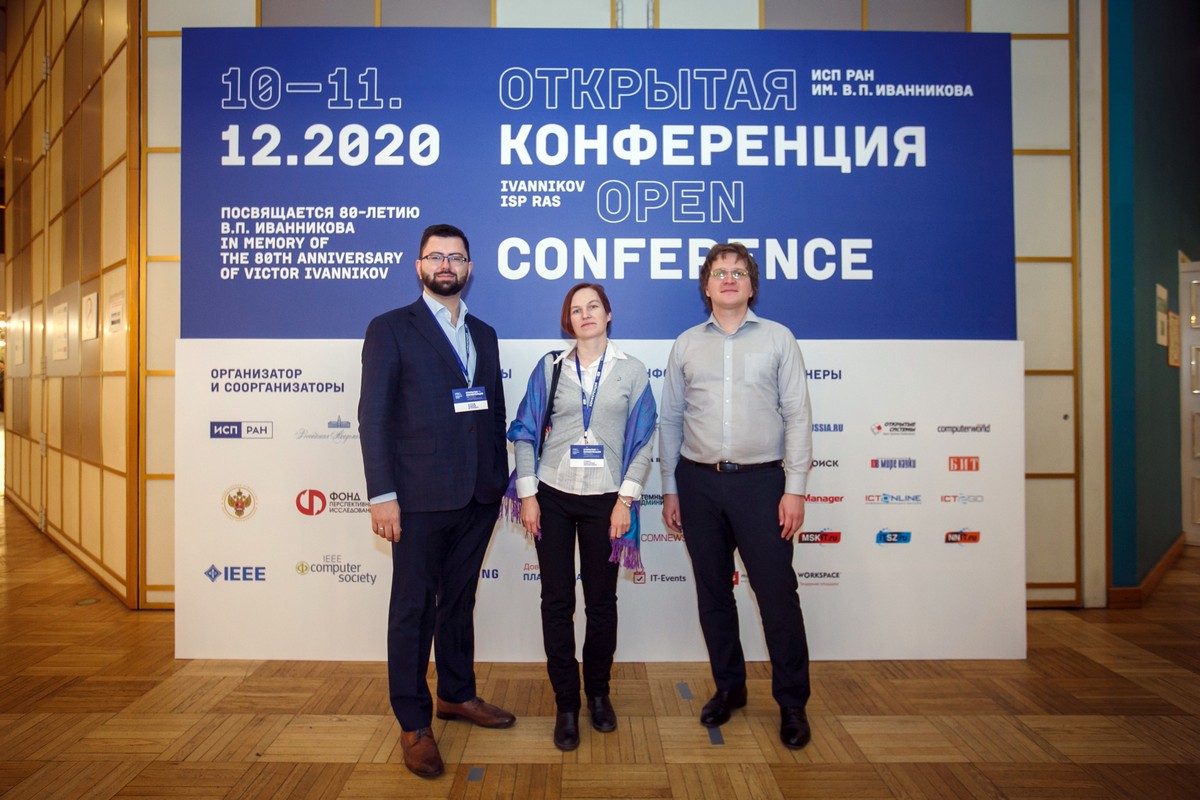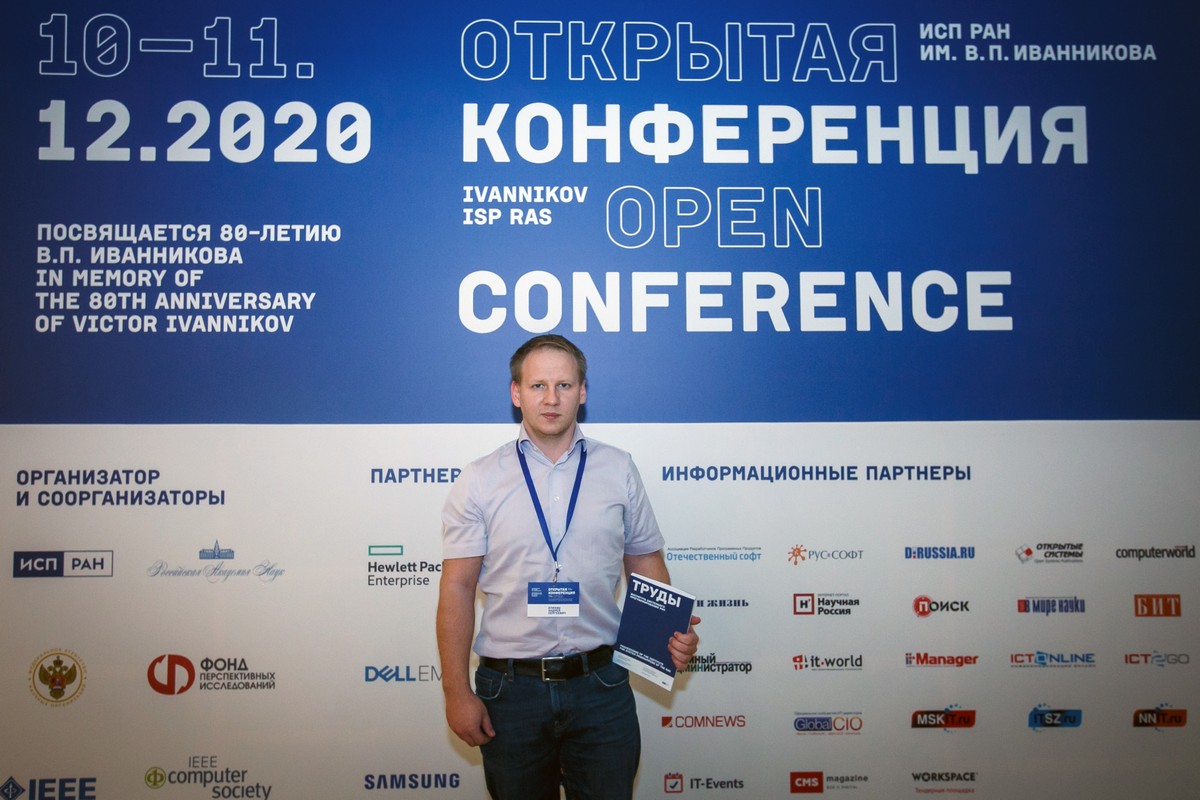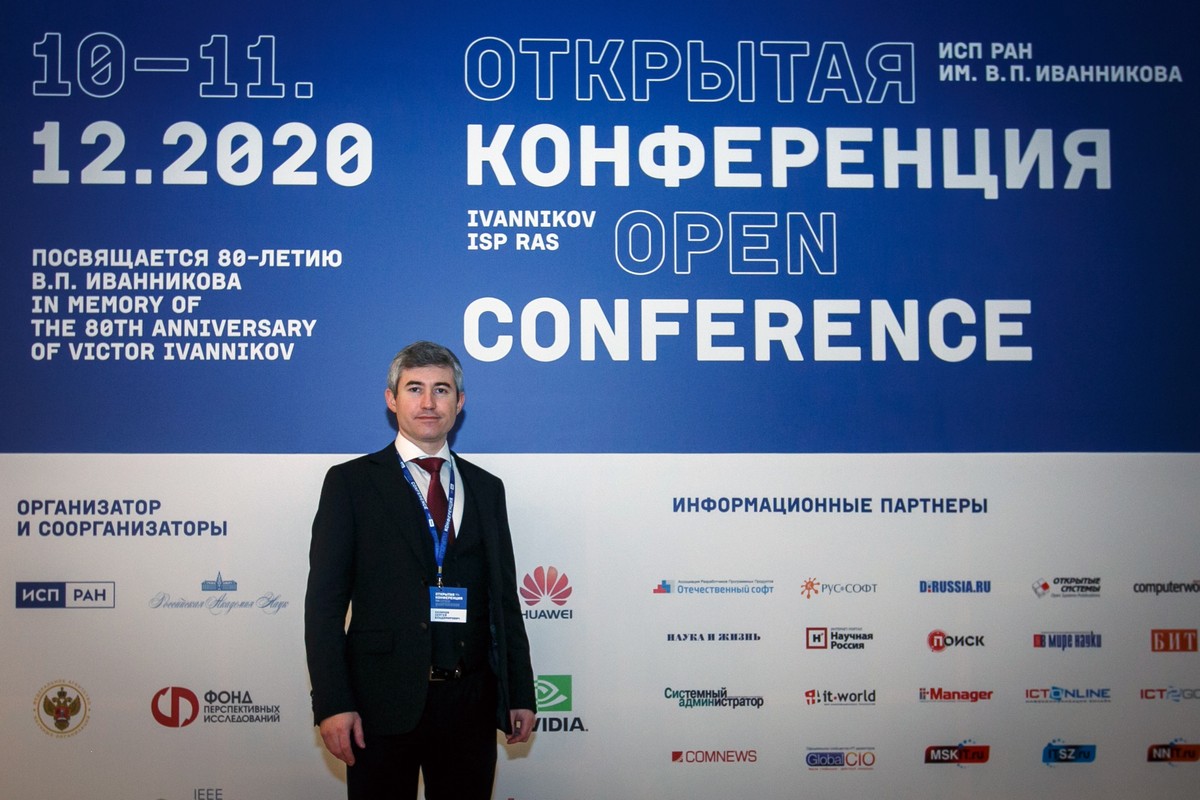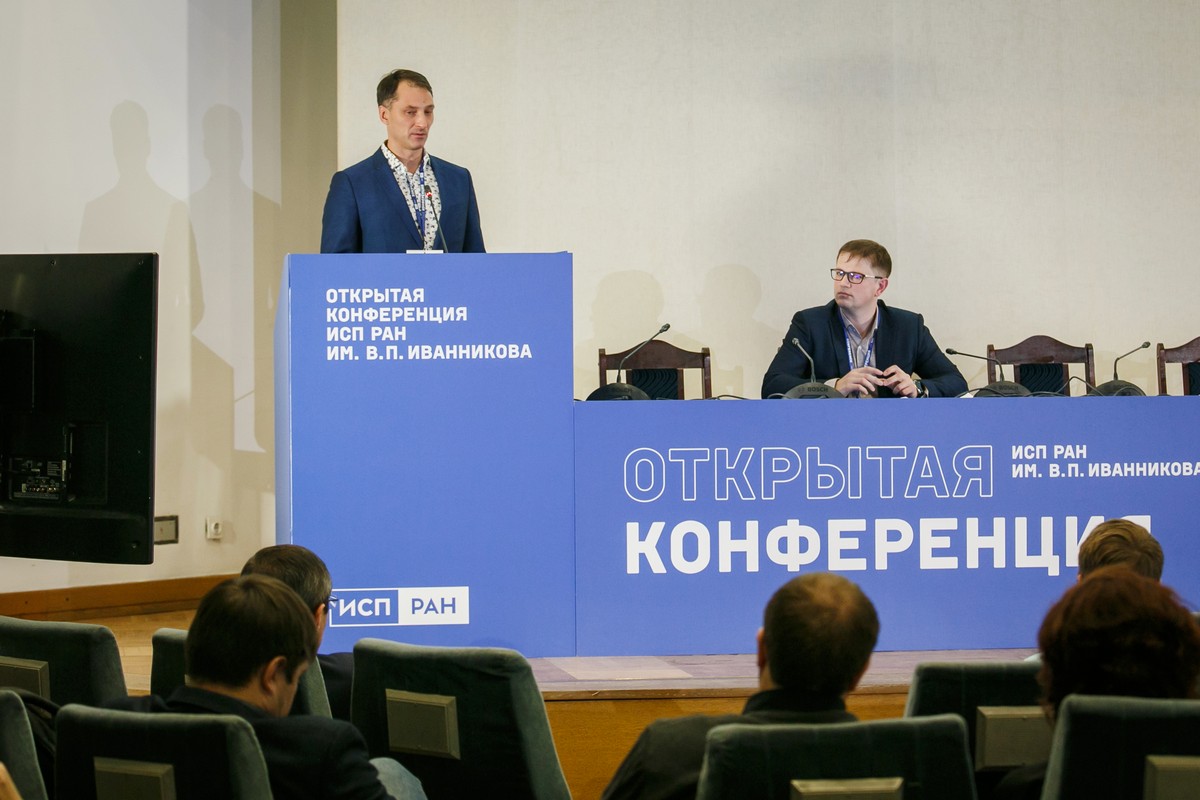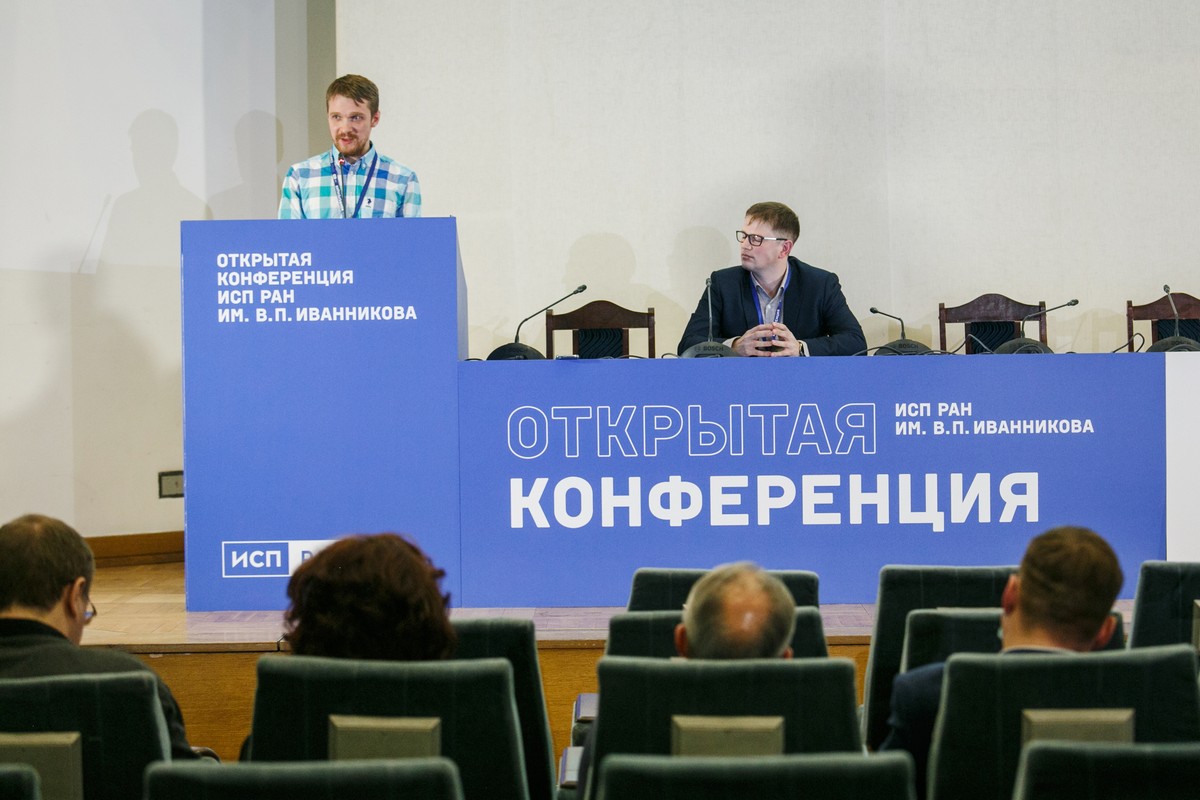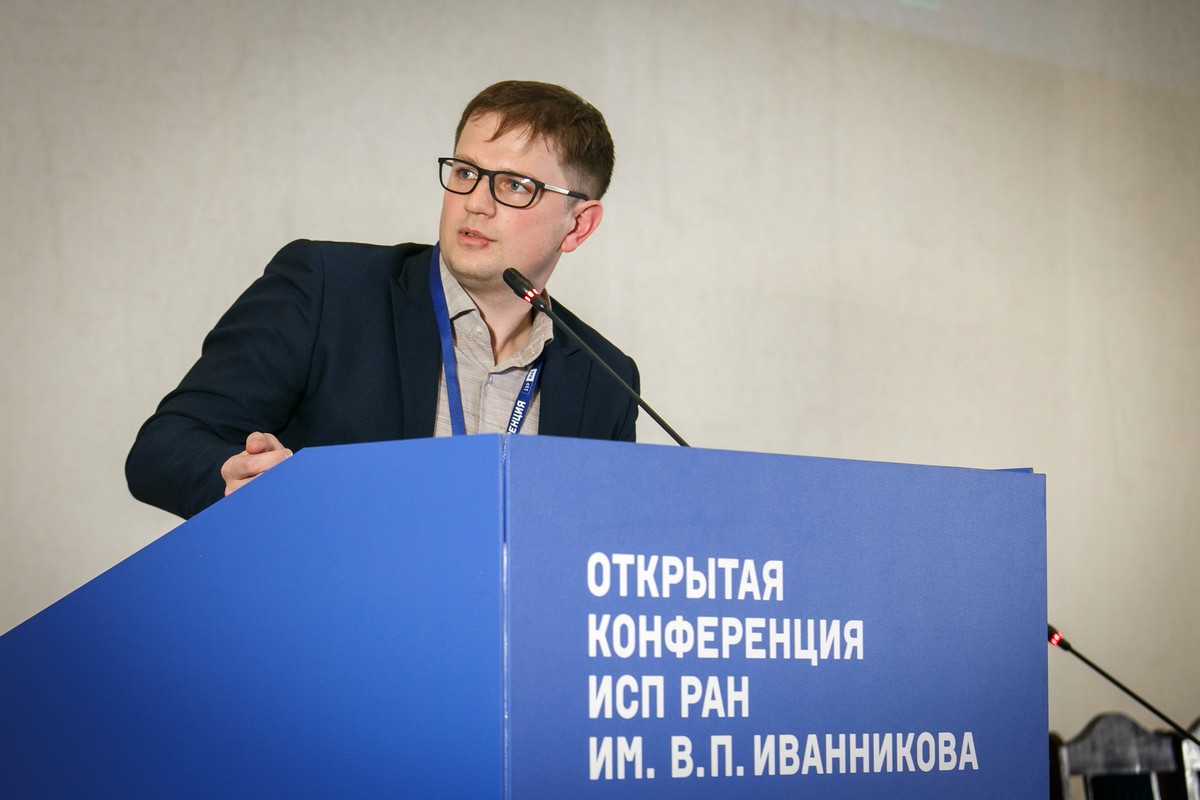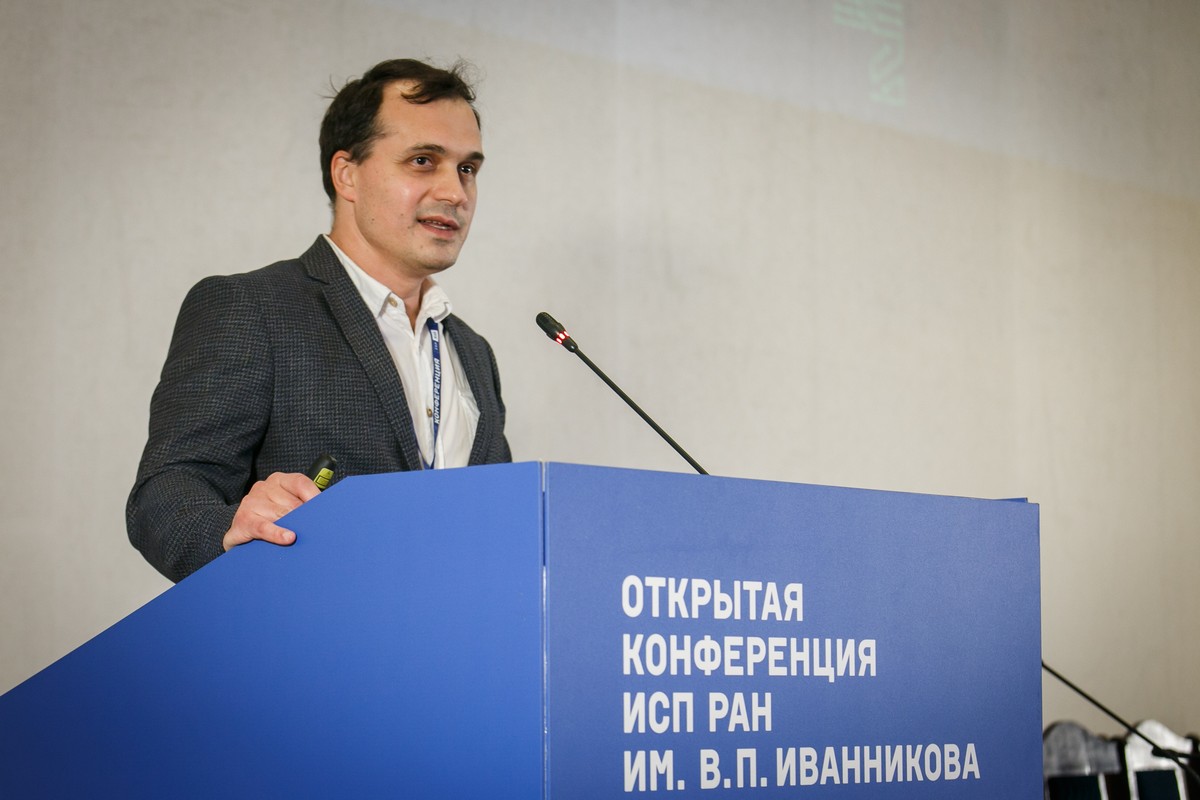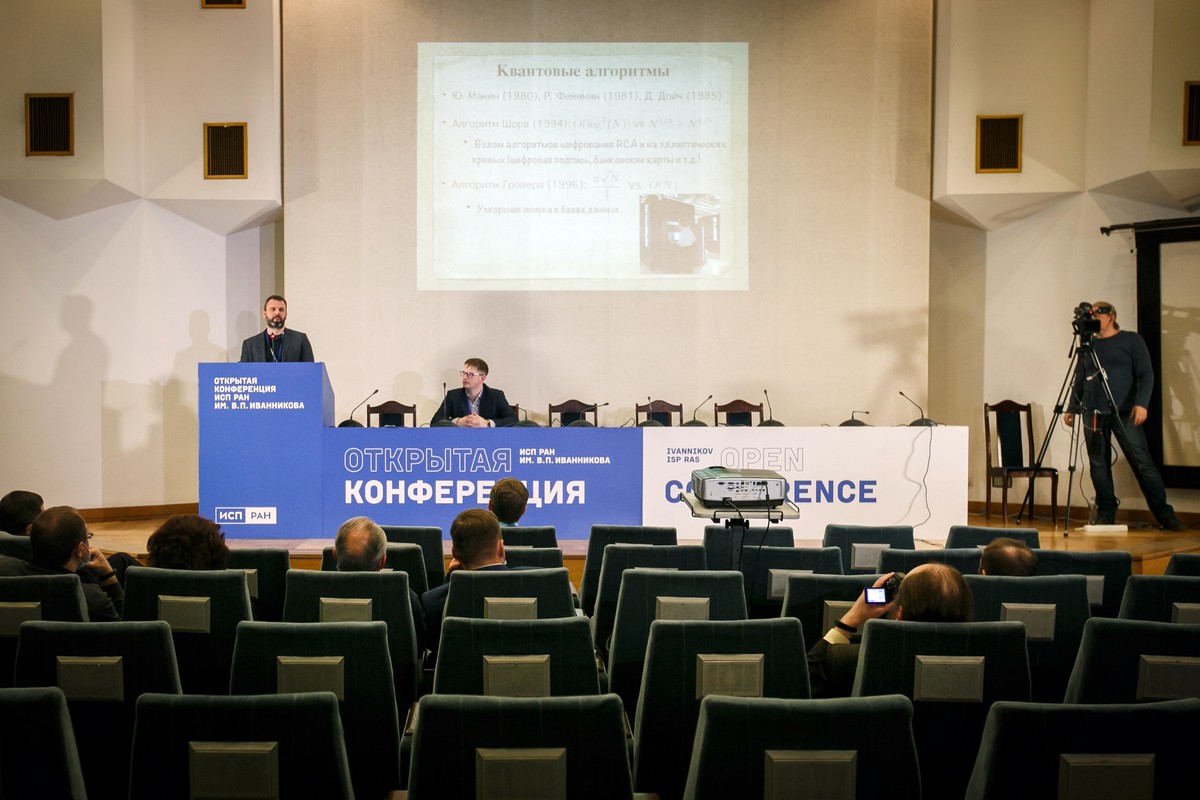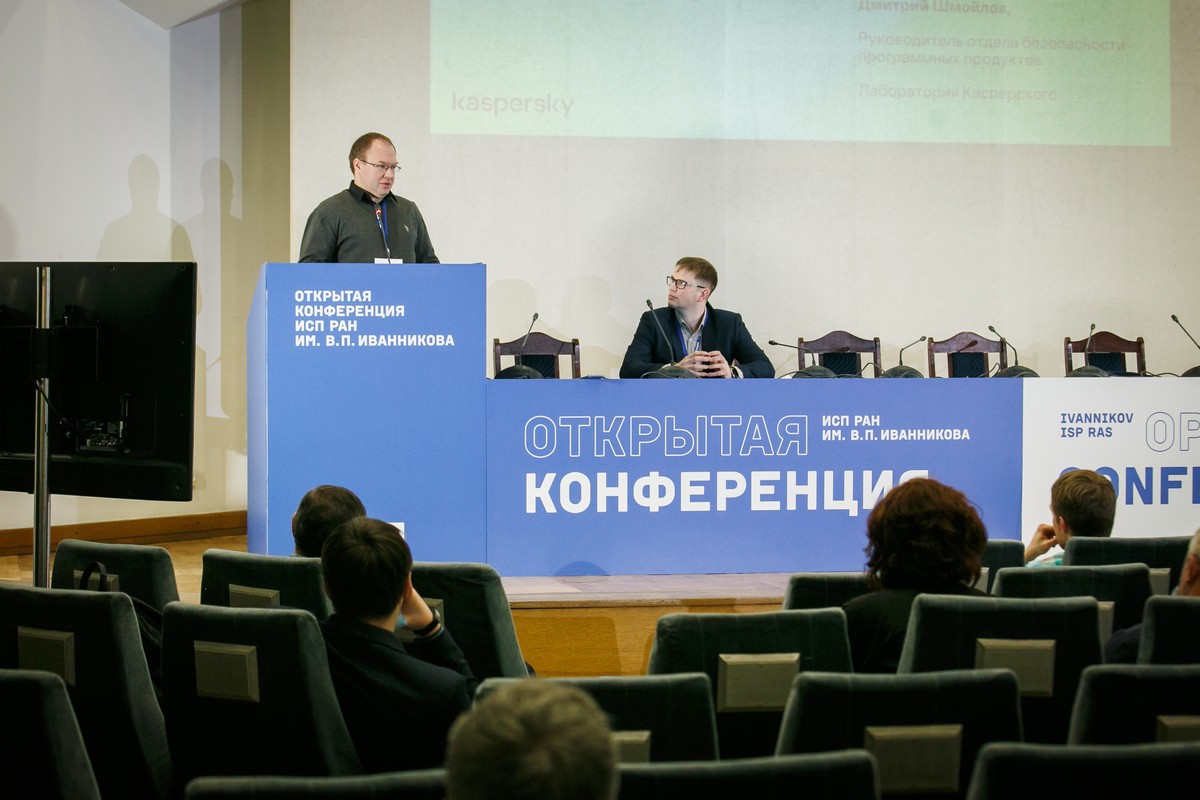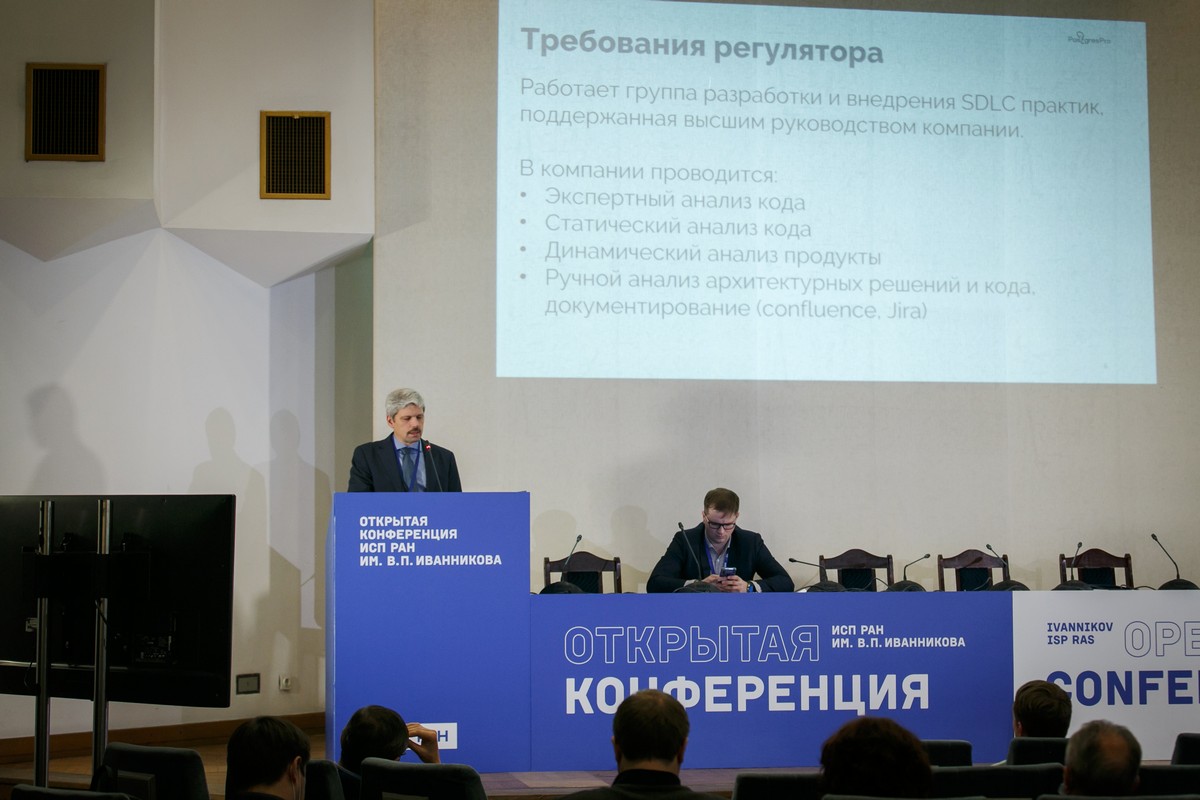ISP RAS Open to be held online
This year the ISP RAS Open conference will be held mostly online. Scientific tracks and the technology exhibition are online only; it is not possible to take part in either of those offline. The RAS building will only host the following offline events with limited number of participants:
- Main session (in honor of 80th anniversary of Victor Ivannikov), December 10th at 9.30am - 12pm;
- Digital medicine roundtable, December 10th at 1pm - 3.30pm;
- Cybersecurity roundtable, December 10th at 4pm - 6.30pm.
Scientific tracks, the digital medicine roundtable, and the main conference session will be streamed live on online.isprasopen.ru (currently under construction).
To get access to live streaming, please register for the conference (at isprasopen.ru. for Russian attendees or via email at scsec@ispras.ru for foreign attendees). The access instructions will be sent to the registration email.
About the Conference
Ivannikov ISP RAS Open Conference is an annual event organized by the Institute for System Programming of the Russian Academy of Sciences (ISP RAS) to discuss fundamental achievements in computer science and to present its new innovative technologies developed for practical commercial use in various industrial projects. The Conference is organized with support of:
- IEEE;
- IEEE Computer Society;
- Russian Academy of Sciences (RAS);
- Advanced Research Foundation (ARF);
- Federal Service for Technical and Export Control (FSTEC Russia);
- Commercial partners of ISP RAS (Samsung, Huawei, Hewlett Packard Enterprise, DELL, NVIDIA and others).
The main sections:
- Program analysis, modeling and transformation technologies.
- Data Management and Information Systems.
- Open source software for continuum mechanics.
To participate in the Ivannikov ISP RAS Conference please register. To present your research please submit a paper, that wasn't yet published or submitted for other conferences. Submission Guidelines are here.
We accept original unpublished articles containing the results of research or describing the work in progress. We invite both researchers and practitioners. All accepted papers will be published in the Proceedings of Ivannikov ISP RAS Open Conference, that is indexed in Web of Science and Scopus. The proceedings will be published online in IEEE Xplore digital library.
Paticipation in the conference and publication of articles are free of charge. Travel and accommodation, as well as other expenses are to be paid by the participant.
Program analysis, modeling and transformation technologies
The section is devoted to optimization methods in compiler and code generation, static and dynamic program analysis, etc. The topics include:
- Binary (executable) code reverse engineering.
- Program execution in controlled environment.
- Vulnerability search in executable code.
- Network traffic analysis.
- Compiler optimization and code generation.
- Program static and dynamic analysis.
- Program analysis and testing methods and tools.
Learn More
Data Management and Information Systems
The section is devoted to data management and data analysis (methods and systems for storing and analyzing large volumes of text, graph, multimedia, scientific and other types of data). The topics include:
- Data mining and information extraction.
- Mathematical theory and methods of machine learning and artificial intelligence.
- Mathematical models of processes and phenomena of the real world.
- Computational linguistics, natural language text analysis and understanding.
- Complex networks analysis, including social, communication, biological networks, etc.
- Signal processing and image analysis.
- User-generated content analysis.
- Information retrieval, recommender systems.
- Ontologies and knowledge bases.
- Information systems and technologies.
- Scalable algorithms for data analysis.
- Data analysis applications.
- Data cleaning, heterogeneous data integration, data deduplication.
- Key technologies for private and hybrid clouds creation.
- High-performance computing and other services in clouds.
- Big data ecosystem.
- Distributed databases and Data/Web Mining technologies.
- Software platforms for internet of things.
- Dynamic load balancing in elastic clouds.
- Planning of task flow in cloud data processing centers.
- Power-saving cloud infrastructures.
Learn More
Open source software for continuum mechanics
The section is devoted to the use of open source software in solving continuum mechanics problems (OpenFOAM, Salome, ParaView, DAKOTA etc.) and comparison of developed software with commercial programs. The topics include:
- Turbulent flows modeling.
- Solving adjoined thermal exchange problems.
- Applied hydrodynamics, gas dynamics and aerodynamics problems.
- Development of personal problem solvers and libraries.
- Scientific visualization and processing of numerical results.
- Education based on open packages issues.
Learn More
Agenda
Thursday, December 10th 2020
Registration. Coffee
Buffet lunch
Virtual exhibition of technologies at online.isprasopen.ru
Digital medicine roundtable (Blue Hall)
Invited participants represent Moscow State University Clinic, I.M. Sechenov First Moscow State Medical University, National Medical and Surgical Center named after N.I. Pirogov, Vorohobov’s City Clinical Hospital No. 67, Research Institute of Obstetrics and Gynecology named after D.O. Ott, National Medical Research Center for Endocrinology, Research Institute of Human Morphology and others.
Coffee break
Cybersecurity roundtable (Blue Hall)
Invited participants represent FSTEC of Russia as well as Kaspersky Lab, Postgres Professional, IVK, Security Code, Bellsoft, Ideco and others.
Open source software in continuum mechanics problems solving (Beige Hall)
Philippe Fraunié1
1 Professor at Toulon University, research director at Mediterranean Institute of Oceanography (M.I.O) Université Toulon
"Studying energy dissipation process in ocean surface"
Bo Yang, PhD1, Qin Zhang, PhD1 Bingchen Liang, PhD1, Xin Liu, PhD1, Mengxiang Qu1, Matvey Kraposhin, PhD2, Erwan Bertevas, PhD3
1 College of Engineering Ocean University of China, Qingdao, 2 ISP RAS, 3 Keppel-NUS Corporate Laboratory National University of Singapore
"Numerical simulation of the interaction between suspended sediment and moving plate based on the drift-flux model"
Tianyuan Wang, Dr.-Ing.1, Hongda Shi, PhD1, Qin Zhang, PhD1, Bo Yang1, Xin Liu PhD1, Matvey Kraposhin, PhD2
1 College of Engineering Ocean University of China, Qingdao, 2 ISP RAS
"Research on the wake of the ducted propeller with POD and DMD"
Break
Konstantin Belyaev, PhD1, Andrey Kuleshov, Dr. Sci.2, Ilya Smirnov3
1 Shirshov Institute of Oceanology of RAS, 2 Keldysh Institute of Applied Mathematics RAS, 3 MSU
"Spatial decomposition of covariance functions in the process of data assimilation by a generalized Kalman filter method
Yuli Chashechkin, Dr. Sci.1, Iaroslav Zagumennyi, PhD2
1 IpMech RAS, 2 Institute of Hydromechanics of National Academy of Sciences of Ukraine
"Numerical and laboratory study of flows around a tilted plate"
Sergei Strijhak, PhD1, Jackson Tellez-Alvarez, PhD2
1 ISP RAS, 2 FLUMEN Research Institute, Department of Civil and Environmental Engineering Technical University of Catalonia Barcelona, Spain
"The multifractal analysis in Geophysical Flows. In memory of Prof. Jose Manuel Redondo Apraiz"
Coffee break
Ilias Sibgatullin, PhD1, Stepan Elistratov2, Kirill Vatutin3, Evgeny Ermaniuk, д.ф.-м.н4, Evgeny Mikhailov2
1 Shirshov Institute of Oceanology of RAS, 2 MSU, 3 ISP RAS, 4 Lavrentyev Institute of Hydrodynamics of the Siberian Branch of RAS
"Wave attractors and accumulation of wave energy in large aspect ratio domains"
Artem Nuriev, PhD1
1 Kazan Federal University
"Three-dimensional numerical simulation of fluid dynamics around vibrating beams"
Technologies of program analysis, modeling and transformation (Green Hall)
Alexey Borodin, PhD1, Irina Dudina, PhD1
1 ISP RAS
"Symbolic Execution Based Intra-procedural Analysis for Search for Defects"
Petr Sovetov1
1 RTU MIREA
"Accelerating the development of DSL compilers for specialized processors"
Aleksandra Soroka1
1 Samsung RnD Institute Rus
"ML-based Clang optimization passes selection for binary code size reduction"
Viacheslav Barinov1, Mikhail Kashkarov1, Andrey Kazmin1
1 Samsung Russian Research Center
"Applying compiler-based binary watermarking technology to ensure binary compatibility in GNU/Linux distribution"
Petr Privalov1, Veronica Butkevich1, Alexander Gerasimov, PhD1, Sergey Vladimirov1, Anna Gorelova1, Natalya Chernova1
1 Huawei, Russia
"An approach to assuring quality of automatic program analysis tools"
Rafael Sadykov1, Mikhail Mandrykin, PhD2
1 ISP RAS
"Formally verified complete quantifier instantiation strategy for the theory of bounded linear integer arithmetic"
Coffee break
Nikolaj Bjorner1
1 Microsoft Research
Navigating the Universe of Z3 Theory Solvers
Marvin Häuser1, Vitaly Cheptsov2
1 Technische Universitat Kaiserslautern, 2 ISP RAS
"Securing the EDK II Image Loader"
Sergey Polyakov1, Alexey Borodin, PhD1
1 ISP RAS
"Deadlock Detection using Static Analysis"
December 10th 2020, 12.40-14.00, Virtual exhibition of technologies at online.isprasopen.ru
12:00, 14:00
Asperitas and Cloud Solutions Family
Asperitas is a platform for data storage and performing complex resource-intensive calculations on demand. It includes a cloud environment also called Asperitas (listed as No. 5921 in the Unified Register of Russian Programs) as well as Michman, a PaaS orchestrator, and Clouni, an IaaS orchestrator. Fanlight, a web laboratories platform, is also a part of ISP RAS cloud solutions family (listed in the Register as No. 6066).
12:00, 14:00
AstraVer Verification Toolset
AstraVer Toolset is a deductive verification system for key software components. It allows developing and verifying security policy models as well as proving the correctness of software modules written in the C programming language. Astraver is essential for ensuring the required trust levels from ADV_SPM and ADV_FSP assurance families as defined in the ISO/IEC 15408 standard.
13:00, 15:00
BinSide: A Binary Code Static Analysis Tool
BinSide is a static program analysis platform for finding defects in binary code. It is useful when checking programs without source code, such as closed source 3rd party libraries, as well as assisting with required static information to dynamic analysis tools.
13:20, 15:20
Casr: crash analysis and severity reporter tool
Casr creates automatic reports for crashes happening during program testing or deployment. The tool works by analyzing Linux coredump files. The resulting reports contain the crash’s severity and additional data that is helpful for pinpointing the error cause.
12:00, 14:00
Constructivity 4D: A Technology of Indexing, Searching and Analysis of Large Spatial-Temporal Data
Constructivity 4D is a technology for creating innovative software services that are capable of processing highly dynamic scenes and vast arrays of spatial and temporal data. It performs visual analysis of millions of objects with individual geometry and dynamic behavior. Constructivity is deployed within the Synchro system that is used for 4D modeling of extremely large construction sites.
12:40, 14:40
ISP Crusher: A Dynamic Analysis Toolset
ISP Crusher is a toolset that combines various dynamic analysis approaches. It includes ISP Fuzzer, a fuzzing tool, and Sydr, an automatic test generation tool for complex programs. Two other ISP RAS analyzers, BinSide and Casr, will be included in Crusher within the next two years. Crusher allows organizing a development process that is fully compliant with GOST R 56939-2016 and other regulatory requirements of FSTEC of Russia.
12:40, 14:40
Dedoc: A Document Structure Retrieval System
Dedoc is an open universal system for converting documents to a unified format. формату. It extracts a document’s logical structure, its tables and metadata. The document’s contents are represented as a tree storing headings and lists of any level. Dedoc can be integrated in document contents and structure analysis systems as a separate module.
12:20, 14:20
DigiTEF, A Digital Twin Platform
DigiTEF is a software platform based on OpenFOAM and other open source tools, as well as unique modules and libraries developed at ISP RAS. DigiTEF solves various application problems of gas dynamics, aerodynamics, hydrodynamics, and acoustics. It is tailored for creating and working with highly sophisticated digital models of industrial devices. DigiTEF is included in the Unified Register of Russian Programs (No. 5377).
13:00, 15:00
Klever: A Software Verification Framework
Klever is a framework for checking models extracted from the source code of large software systems developed in the C programming language. Klever performs automated verification of various security and safety requirements.
12:20, 14:20
Lingvodoc: A Virtual Laboratory for Documenting Endangered Languages
Lingvodoc is a system intended for collaborative multi-user documentation of endangered languages, for creating multi-layered dictionaries and performing scientific work with the received sound and text data. It is a joint project with the Institute of Linguistics of the Russian Academy of Sciences and Tomsk State University. Lingvodoc is under active development since 2012 and can be found on lingvodoc.ispras.ru.
12:20, 14:20
MASIW: Support for Designing Highly Reliable Software Systems
MASIW is a toolset for developing highly reliable hardware and software systems for avionics, medicine, and other safety critical areas. It is designed for engineers creating airborne hardware/software systems that are developed using the integrated modular avionics (IMA) approach. MASIW can be easily adapted for other application areas.
12:40, 14:40
MicroTESK: A Test Program Generator
MicroTESK is an industry-targeted framework for generating test programs for functional verification of microprocessors. Based on formal specifications of microprocessor architectures, MicroTESK allows constructing test program generators automatically. MicroTESK supports a variety of architectures ranging from CISC/DSP to RISC and VLIW. MicroTESK supports online test program generation.
12:20, 14:20
Protosphere: A Network Traffic Analyzer
Protosphere is a system of deep packet inspection (DPI). It can serve as a part of intrusion and information leak protection systems. Protosphere detects inconsistencies between a protocol specification and the actual traffic. It allows you to add support quickly for new protocols (either open or closed) due to the flexibility of its internal representation.
12:40, 14:40
ISP RAS Software Analysis Platform based on QEMU
ISP RAS Foundation Platform for creating program analysis systems is built on top of open source QEMU emulator. This framework is essential for organizing multi platform and cross platform development. It supports reverse debugging and introspection features, as well as full system emulation mode for debugging low-level software.
13:00, 15:00
SciNoon: Exploratory Search System for Scientific Groups
SciNoon is a system for collaborative exploration of scientific papers. It is essential for a group of researchers to dive quickly into the new area of knowledge and to find answers on their questions, following up with tracking new research on the topic of interest with highly customizable alerts.
12:00, 14:00
Svace Static Analyzer
Svace is an essential tool of the secure software development life cycle, the main static analyzer that is used in Samsung Corp. It detects more than 50 critical error types as well as hundreds of coding issues. Svace supports C, C++, C#, and Java, with preview support of Kotlin and Go. Svace is included in the Unified Register of Russian Programs (No.4047).
13:20, 15:20
Texterra: A Semantic Analyzer
Texterra is a scalable platform for extracting semantics from text. It contains the complete fundamental set of technologies for creating multifunctional applications for text analysis. Texterra bases its semantic analysis approach on concept identification. The platform is included in the Unified Register of Russian Programs (No.4048).
12:20, 14:20
ISP Obfuscator
ISP Obfuscator is a set of technologies to prevent mass exploitation of vulnerabilities resulting from errors or backdoors. In case a hacker is capable of attacking one of the devices that has certain software installed, the rest will remain protected by changes to the code that the tool made.
12:00, 14:00
TRAWL: A Binary Code Analysis Platform
TRAWL is a unique production-level tool for analyzing various binary code features that supports multiple target processor architectures. It does not require debug information or source code. Trawl can be used to analyze all kinds of software ranging from boot loaders to user-level applications. It is included in the Unified Register of Russian Programs (No.5323).
Technology demonstration is available on demand. Please send request with name, surname and phone number to trawl@ispras.ru.
Friday, December 11th 2020
Open source software in continuum mechanics problems solving. Poster session online.isprasopen.ru.
Participant introduction: 10:50 - 11:00
Management of Data and Information Systems (Blue Hall)
Andrey Fomichev1
1 Head of Service at Yandex
"Yandex Database Serverless, a database virtualization approach"
Konstantin Avrachenkov1
1 Director of Research, INRIA Sophia Antipoli
"Semi-supervised learning on graphs"
Sergey Kuznetsov, Dr. Sci.1, Pavel Velikhov2, Qiang Fu2
1 ISP RAS, 2 Huawei Russian Research Institute
"Real-time analytics, hybrid transactional/analytical processing, in-memory data management, and non-volatile memory"
Alexander Shmid, Dr. Sci., Prof.1
1 EC-leasing company
"Practice and perspectives of using emulators family of mainframe architectures IBM"
Break
Alexandr Efimov1, Artem Polyakov2, Konstantin Kramarenko1
1 SIBSUTIS, 2 NVIDIA Corporation
"Key-value database access optimization for PMIx standard implementation"
Mikhail Babenko, PhD1, Andrei Tchernykh, PhD2, Bernardo Pulido-Gaytan, Ph.D3, Elena Golimblevskaya4, Jorge Mario Cortés-Mendoza5, Arutyun Avetisyan, Dr. Sci.2
1 North-Caucasus Federal University, 2 ISP RAS, 3 CICESE Research Center, Ensenada, Mexico, 4 NCFU, 5 South Ural State University
"Experimental Evaluation of Homomorphic Comparison Methods"
Maxim Ryndin1, Denis Turdakov, PhD1, Sergey Kuznetsov, Dr. Sci.1
1 ISP RAS
"Catalyst: Combining Co-training and Active Learning for Lifelong Classification"
Andrey Sakhovskiy1, Valery Solovyev, Dr. Sci.1, Marina Solnyshkina, PhD1
1 KFU
"Topic Modeling for Assessment of Text Complexity in Russian Textbooks"
Break
Andrey Mikhaylov, PhD1, Alexey Shigarov, PhD2, Egor Rozkov2, Igor Cherepanov1
1 IDSTU SB RAS, 2 ISU
"On Graph-Based Verification for PDF Table Detection"
Jorge Mario Cortés-Mendoza1, Andrei Tchernykh, PhD2, Adrián Facio Medina3, Bernardo Pulido-Gaytan, Ph.D3, Gleb Radchenko1, Mikhail Babenko, PhD4, Igor Chernykh, PhD5, Igor Kulikov, Dr. Sci.5, Sergio Nesmachnow, Ph.D6, Raul Rivera-Rodriguez6
1 South Ural State University, 2 ISP RAS, 3 CICESE Research Center, Ensenada, Mexico, 4 North-Caucasus Federal University, 5 ICMMG SB RAS, 6 The University of the Republic, Uruguay
"Toward digital twins' workload allocation on clouds with low-cost microservices streaming interaction"
Elena Aksenova1, Nikita Lazarev1, David Badalyan1, Oleg Borisenko1, Roman Pastukhov1
1 ISP RAS
"Michman, an orchestrator to deploy distributed services in cloud environments"
Valeriya Shvetcova1, Oleg Borisenko1, Maxim Polischuk2
1 ISP RAS, 2 The Bauman Moscow State Technical University
"Using Ansible as Part of TOSCA Orchestrator"
Irina Enyagina1, Andrey Polyakov, PhD1
1 NRC "Kurchatov Institute"
Digital Lab platform as an environment for scientific research and development at the Kurchatov Institute
Break
Poltavtseva Maria, PhD1
1 SPbPU
"Heterogeneous Data Aggregation and Normalization in Information Security Monitoring and Intrusion Detection Systems of Large-scale Industrial CPS"
Vladislav Ananev1, Pavel Andreev1, Aram Avetisyan1, Vladimir Makarov1, Vadim Gliner2, Assaf Schuster2, Evgeny Karpulevich1
1 ISP RAS, 2 Технион, Израиль
"Non-architectural improvements for ECG classification using deep neural network"
Mariia Akimenkova1, Anna Maznina2, Anton Naumov1, Evgeny Karpulevich1
1 ISP RAS, 2 MIPT
"Application of HDBSСAN method for clustering scRNA-seq data"
Open source software in continuum mechanics problems solving (Beige Hall)
Alexander Petrov, Dr. Sci.1
1 Chief Researcher, professor at IpMech RAS
"On superconvergent numerical schemes based on boundary element method"
Igor B. Petrov, Doctor of Sciences, Prof., Head of department1
1 MIPT
"Arctic research problems"
Participant introduction for the poster session
Victoria Korchagova1
1 ISP RAS
"On Implementation of Discontinuous Galerkin Scheme for Gas Dynamics Problems Using Open-Source Software"
Anatoly Ryabinin1, Alexander Kuzmin1
1 Department of Hydroaeromechanics Saint Petersburg University
"Transonic flow simulation in a bent channel using SU2 software"
Poster session and lunch
Matvey Kraposhin, PhD1
1 ISP RAS
"QGDsolver: open-source framework for development of gas and liquid models based on regularized equations"
Dmitrii Golovin1
1 VNIIFTRI
"Simulation of infrasonic pistonphone"
Andrey Epikhin, PhD1
1 ISP RAS
"Numerical modelling of highly underexpanded underexpanded jet impingement on a flat plate"
Ivan Shirokov, PhD1
1 MSU
"Method for accurate gridding for modelling of external flows"
Kirill Vatutin1, Andrey Epikhin PhD1, Matvey Kraposhin PhD1
1 ISP RAS
"Sonic boom prediction in far field for supersonic vehicles via open-source software"
Break
Viktor Ignatenko1, Denis Bazarevskiy2
1 STR-Soft
"Experience of Substitution of Commercial CAD, CAE Software Components with Freeware Analogues"
Ilya Evdokimov, PhD1, Susann Hänsch1
1 The Helmholtz-Zentrum Dresden-Rossendorf
"Scalable Workflows for OpenFOAM Evaluation"
Maria Komarova1, Vladimir Zenkin1, Maxim Kulabukhov1
1 The Bauman Moscow State Technical University
"Multicriteria optimization of the diesel engine piston cooling gallery"
Daria Romanova1
1 ISP RAS
"Comparison of Single Velocity and Multi Velocity Multiphase Models for Slope Flow Simulations"
Technologies of program analysis, modeling and transformation (Green Hall)
Evgeny Novikov, PhD1, Vladimir Gratinskiy1, Ilya Zakharov, PhD1
1 ISP RAS
"Expert Assessment of Verification Tool Results"
Denis Straghkov1
1 ISP RAS
"Methods and software tools which allow emulating UEFI modules"
D.A. Rybolovlev1, M.N. Goryunov1, A.G. Mackevich1
1 Russian Federation Security Guard Service Federal Academy
"Synthesis of a machine learning model for detecting computer attacks based on the CICIDS2017 dataset"
Alexey Vishnyakov1, Andrey Fedotov, PhD1, Daniil Kuts1, Alexander Novikov1, Darya Parygina1, Eli Kobrin1, Vlada Logunova1, Pavel Belecky1, Shamil Kurmangaleev, PhD1
1 ISP RAS
"Sydr: Cutting Edge Dynamic Symbolic Execution"
Sevak Sargsyan, PhD1, Vahagn Vardanyan, PhD1, Hayk Aslanyan, PhD1, Mariam Harutunyan1, Matevos Mehrabyan1, Karen Sargsyan1, Hripsime Hovahannisyan1, Hovhannes Movsisyan1, Jivan Hakobyan1, Shamil Kurmangaleev, PhD2
1 Russian-Armenian Slavonic University Yerevan, Armenia, 2 ISP RAS
"GΕΝΕS ISP, a code analysis platform"
Ekaterina Lavrischeva, Dr. Sci.1
1 ISP RAS
"Мodeling Technical and Mathematical Problems in Applied Knowledge Areas"
Break (lunch)
Mikhail Solovyev, PhD1, Maksim Bakulin1, Sergey Makarov1, Dmitry Manushin1, Vartan Padaryan, PhD1
1 ISP RAS
"Practical abstract interpretation of binary code"
Sergey Kozlov, PhD1, Sergey Kopylov1, Boris Kondrat’ev2, Dmitry Obydenkov3
1 Russian Federation Security Guard Service Federal Academy, 2 The Ministry of Defence of the Russian Federation, 3 ISP RAS
"Implementing watermarking based on a virtual XPS printer for Windows operating systems"
Maksim Mishechkin1, Shamil Kurmangaleev, PhD1, Vitaly Akolzin1
1 ISP RAS
"Architecture and functionality of the ISP Fuzzer"
Vitaly Akolzin1, Shamil Kurmangaleev, PhD1, Maksim Mishechkin1
1 ISP RAS
"Development of an effective method for fuzzing applications with complex data formats"
Break
Thien Tran1, Shamil Kurmangaleev, PhD1
1 ISP RAS
"Automated generation of fuzzing tests"
Sergey Zelenov, PhD1, Ekaterina Lavrischeva, Dr. Sci.1
1 ISP RAS
"Model-Based Approach for Ensuring Reliability and Security of Web Services"
December 11th 2020, 11:40-14:00. Open source software in continuum mechanics problems solving. Poster session online.isprasopen.ru
Participants Introduction
Artem Vodeniktov1, Valeriia Melnikova2
1 KSPEU, 2 ISP RAS
"Investigating the Flow Conditioners Working Regimes Efficiency Using Numerical Simulations"
Michael Ermakov, PhD1
1 IpMech RAS
"Mesh generation via open-source code Gmsh"
Mikhail Levin, PhD1, Alexander Ivanov1, Tatiana Stenina1, Sergey Strijhak, PhD1
1 ISP RAS
"Toward to usage of regularized Stefan problem solution in icing modeling"
Albina Gizzatullina1, Maria Koroleva2, Olga Mishchenkova1, Alena Chernova1
1 Kalashnikov ISTU, 2 UdFRC UB RAS
"Numerical investigation of cooling down and aerodynamic resistance processes in ribbed tubular elements"
Matvey Kraposhin, PhD1
1 ISP RAS
"Open source software as a foundation for constructing integrated digital models of engineering systems"
Vladimir Sudakov, Dr. Sci.1, Vladimir Osipov1
1 Keldysh Institute of Applied Mathematics, RAS
"The Fuzzy Origin–Destination Matrix Estimation for Planning Air Traffic"
Daria Romanova1, Sergei Strijhak, PhD1, Matvey Kraposhin, PhD1
1 ISP RAS
"Development of snowYadeFoam solver for snow particles simulation"
Maria Kiryushina, PhD1, Tatiana Elizarova, Dr. Sci.1
1 Keldysh Institute of Applied Mathematics, RAS
"Simulation of nozzle start-up process and jet flow to low pressure area"
Ilias Sibgatullin, PhD1, Daniil Riazanov2, Matvey Kraposhin, PhD2, Evgeny Ermaniuk, Dr. Sci.3
1 Shirshov Institute of Oceanology of RAS, 2 ISP RAS, 3 Lavrentyev Institute of Hydrodynamics of the Siberian Branch of RAS
"Direct numerical simulation of internal wave attractors in stratified and/or rotating fluids"
Mikhail Zaitsev, PhD1
1 IBRAE RAS
"Usage of CABARET method for triangular flat cells"
Bulat Kashfutdinov1
1 ISP RAS
"Analysis of natural frequencies of reservoir filled with liquid at different levels using the open-source software Code_Aster"
Programme Committee
Steering committee
- Arutyun Avetisyan, Prof., Academician of RAS, director of ISP RAS.
- Garbuk S.V., Ph.D. in Technical Sciences, scientific projects director (Higher School of Economics).
- Gergel V.P., Doctor of Technical Sciences, Professor at the Institute of Information Technology, Mathematics and Mechanics, NNSU.
- Kalyaev I.A., Doctor of Technical Sciences, Academician of RAS, scientific supervisor (Research Institute of multiprocessor computing systems, SFU).
- Lyutikov V.S., deputy director of FSTEC Russia.
- Fedosov E.A., Doctor of Technical Sciences, Academician of RAS, scientific supervisor of GosNIIAS.
- Assaf Schuster, Professor, head of AI center (Computer Science Department, Israel Institute of Technology (Technion)).
- Hironori Kasahara, Professor of Computer Science at Waseda University in Tokyo, 2018 IEEE Computer Society President.
- Dejan Milojicic, HP Labs, 2014 IEEE Computer Society President.
- Ivan Arzhantsev, Dr. Sci., Dean of the Faculty of Computer Science, HSE.
- Mikhail Pogosyan, Rector of Moscow Aviation Institute (MAI).
- Andrei Raigorodskii, Dr. Sci., Director of Phystech School of Applied Mathematics and Informatics, MIPT.
- Vladimir Rubanov, PhD, CTO Software Engineering, Huawei R&D Russia.
Organizing Committee
- Arutyun Avetisyan, Prof., Academician of RAS, director of ISP RAS.
- Samovarov Oleg, Ph.D., ISP RAS.
- Volkov Dmitry, editor-in-chief ("Open Systems"), senior research fellow (Keldysh Institute of Applied Mathematics).
- Prokhorov Sergei, Prof., MIPT.
Programme Committee
Program analysis, modeling and transformation technologies
- Arutyun Avetisyan, Prof., Academician of RAS, director of ISP RAS.
- Belevantsev Andrey, Dr. Sci., ISP RAS.
- Nikolaj Bjørner, Principal Researcher at Microsoft Research, Redmond, USA.
- Volkonsky V.Yu., Ph.D., JSC "MCST".
- Gaysaryan Sergey, Ph.D., ISP RAS.
- Devyztin P.N., Prof., ISEDU .
- Drozdov Alexander, Prof., MIPT.
- Kozachok Aleksander, Prof., The Federal Security Service of the Russian Federation, Head of the Laboratory for System Programming in Oryol.
- Makarov Vladimir , Ph.D., NovSU.
- Segey Yakushkin, Head of Compiler group, Huawei R&D Russia.
- Dmitry Melnik, ISP RAS.
- Vartan Padaryan, Ph.D., Head of Binary Reverse Engineering Team (ISP RAS).
- Petrenko Aleksander, Prof., ISP RAS.
- Kurmangaleev Shamil, Ph.D., ISP RAS.
Data Management and Information Systems
- Denis Turdakov, Ph.D., ISP RAS.
- Natalia Loukachevitch, Dr. Sci., Research Computing Center of Moscow State University.
- Dmitry Ustalov, Ph.D., Yandex.
- Kuznetsov Sergey, Dr. Sci., Professor, ISP RAS.
- Anton Korshunov, Ph.D., Quantum.uk.
- Nikita Astrakhantsev, Ph.D., Microsoft Corp.
- Dmitry Lizorkin, Ph.D., Google LLC.
- Boris Dobrov, Ph.D., Research Computing Center of Moscow State University.
- Elena Tutubalina, Ph.D., Kazan Federal University.
- Andrei Tchernykh, Dr. Sci., Prof., CICESE Research Centre (Ensenada, Baja California, Mexico).
- Oleg Samovarov, Ph.D., ISP RAS.
- Andrey Filchenkov, Ph.D., ITMO University.
- Ilya Sochenkov, Ph.D., Federal Research Center of Computer Science and Management (RAS).
- Assaf Schuster, Ph.D., ACM Fellow and IEEE Fellow, Professor of the Computer Science Department at the Technion, Israel Institute of Technology.
Open source software for continuum mechanics
- Kraposhin M.V., ISP RAS.
- Kornev N.V., Prof. Dr-Ing. habil., Universitat Rostock.
- Marchevskiy I.K., Ph.D., Bauman MSTU.
- Artem Nuriev, PhD, N.I. Lobachevsky Institute of Mathematics and Mechanics.
- Sigbatullin I.N., Ph.D., ISP RAS; IO RAS.
- Chashechkin Yu D., Prof., Ishlinsky Institute for Problems in Mechanics RAS.
- Scheglov G.A., Prof., Bauman MSTU.
- Strizhak S.V., Ph.D., ISP RAS.
- Yakobovsky M.V., RAS corresponding member, Prof., Keldysh Institute of Applied Mathematics.
- Yelizarova T.G., Dr.Sci., Prof., Keldysh Institute of Applied Mathematics.
- Terekhov K.M., Ph.D., INM RAS.
- Epikhin Andrey, Ph.D., ISP RAS.
- Dr. Henrik Rusche, WIKKI Gesellschaft fur numerische Kontinuumsmechanik mbH.
- Prof J.M. Redondo, Universitat Politècnica de Catalunya, PELNoT, LAB-ERCOFTAC.
- Tellez Alvarez, Jackson, PhD., Flumen Institute, Universitat Politècnica de Catalunya – Consorci Besòs Tordera.
Organizer & Partners
Registration
Paticipation in the conference and publication of articles are free of charge. Travel and accommodation, as well as other expenses are to be paid by the participant.
Contact us via e-mail scsec@ispras.ru to get instructions.
Submission
The papers should be 3-7 pages long, formatted using Templates for Conference Proceedings. Peer review is double-blind. Please remove any references to authors (such as names, affiliations or e-mails) from submitted articles, as well as direct references to previous works. In case of successful review and acceptance you will be requested to submit camera-ready text with necessary author details.
Submission is open at EasyChair.
Submissions that violate these guidelines will be rejected.
Important dates
- Articles submission: November 2, 2020 (23:59, GMT+3).
- Notification of acceptance:
November 5November 16, 2020. - Camera ready copies:
November 15November 21, 2020. - Participants registration: November 25, 2020.
Contacts and other information
E-mail and phone
You may contact us by e-mail
Venue address
Moscow, Leninskiy prospect, 32A, the Main building of the RAS (not far from Moscow Metro station "Leninskiy prospect" and Moscow Central Circle station "Ploshchad Gagarina"). The venue may be changed due to the epidemiological situation; the Conference may take place online.
Details
The Conference is held from 9:00 to 18:00 (with coffee breaks and lunch for guests and participants).
